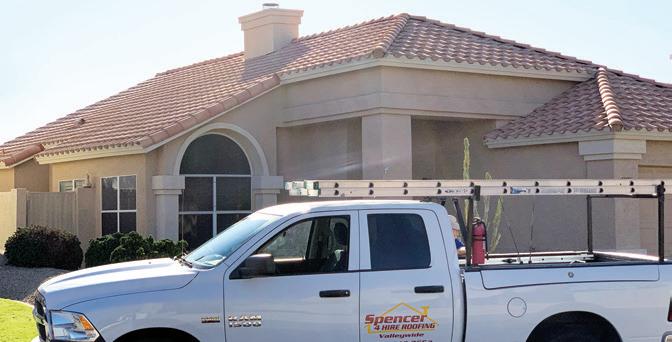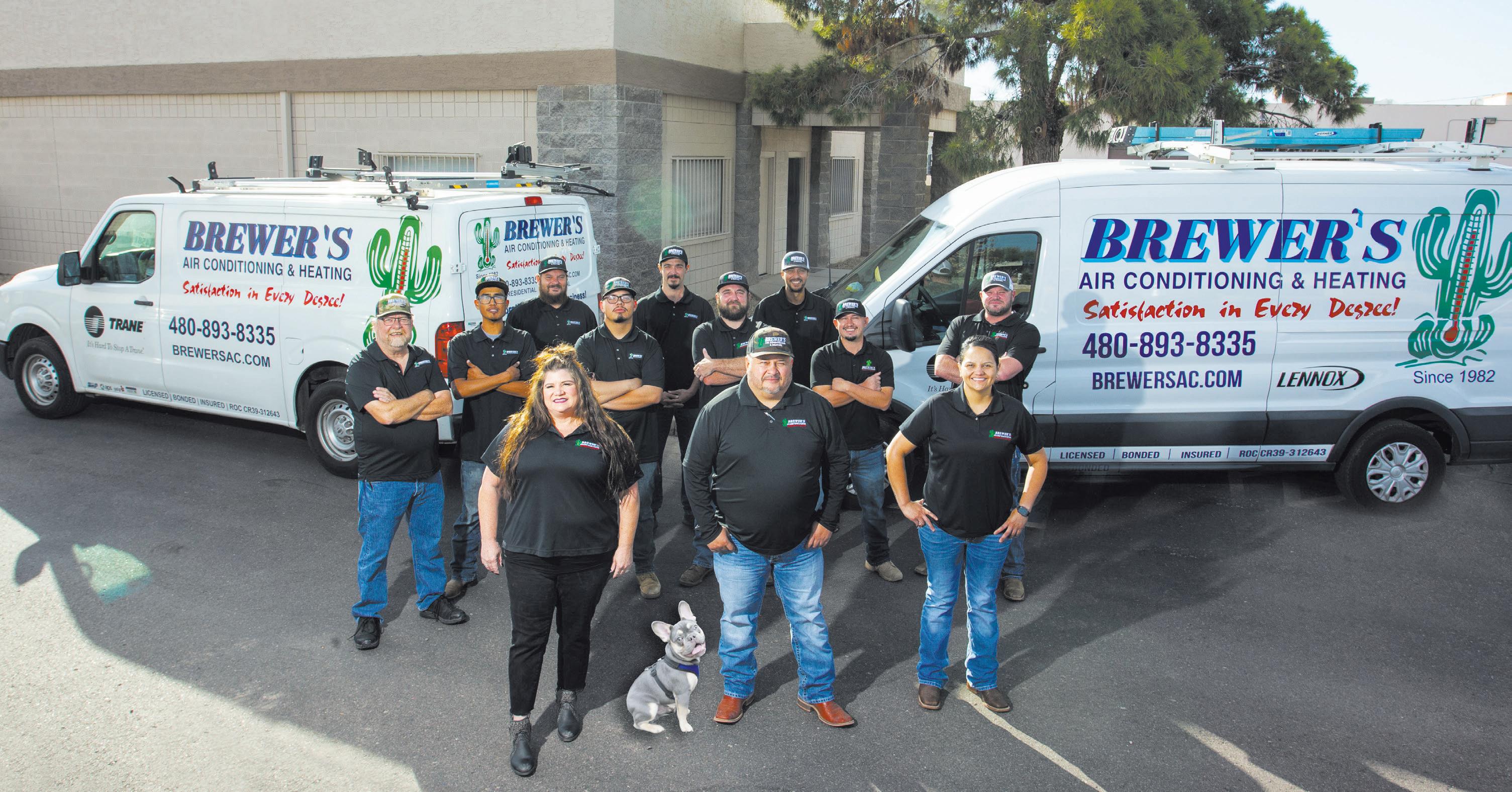www.ahwatukee.com





www.ahwatukee.com




The Phoenix Metro region could lose more than $100 million in economic growth if it fails to meet upgraded federal air quality standards for ozone levels by August 2024, a Valley environmental official told Phoenix City Council last week.
And those losses would steadily increase over the next 20 years to as much as $848 million if the Valley’s ozone levels are not brought under control, Tim Franquist, environmental policy director for the Maricopa Association of Governments told council’s Community and Cultural Investment Subcommittee Jan. 4. Moreover, the controls necessary to meet
more stringent federal air quality controls will carry a substantial cost to taxpayers, he indicated.
“That’s going to be a big issue for this area,” he continued. “We really haven’t put in ozone-control measures for about 20 years, so we’re definitely going to need a lot more
 BY PAUL MARYNIAK AFN Executive Editor
BY PAUL MARYNIAK AFN Executive Editor


Ahwatukee voters haven’t seen the end of the 2022 election cycle and have one more vote to cast.
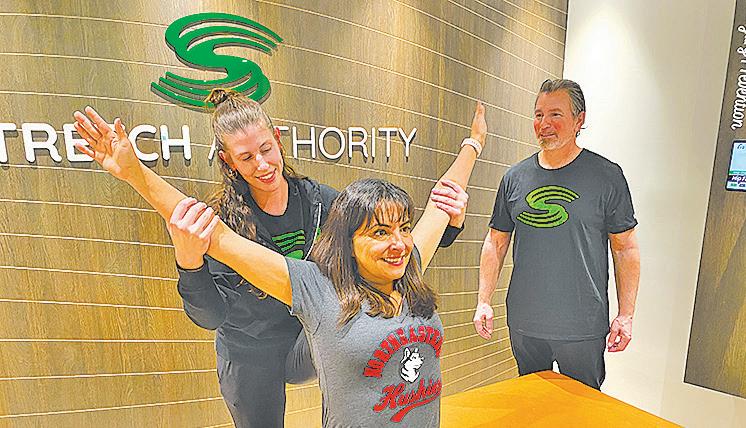
That will be to decide whether Kevin Robinson or Sam Stone will replace Sal DiCiccio as their representative on Phoenix City Council. Term limits precluded DiCiccio from running again.
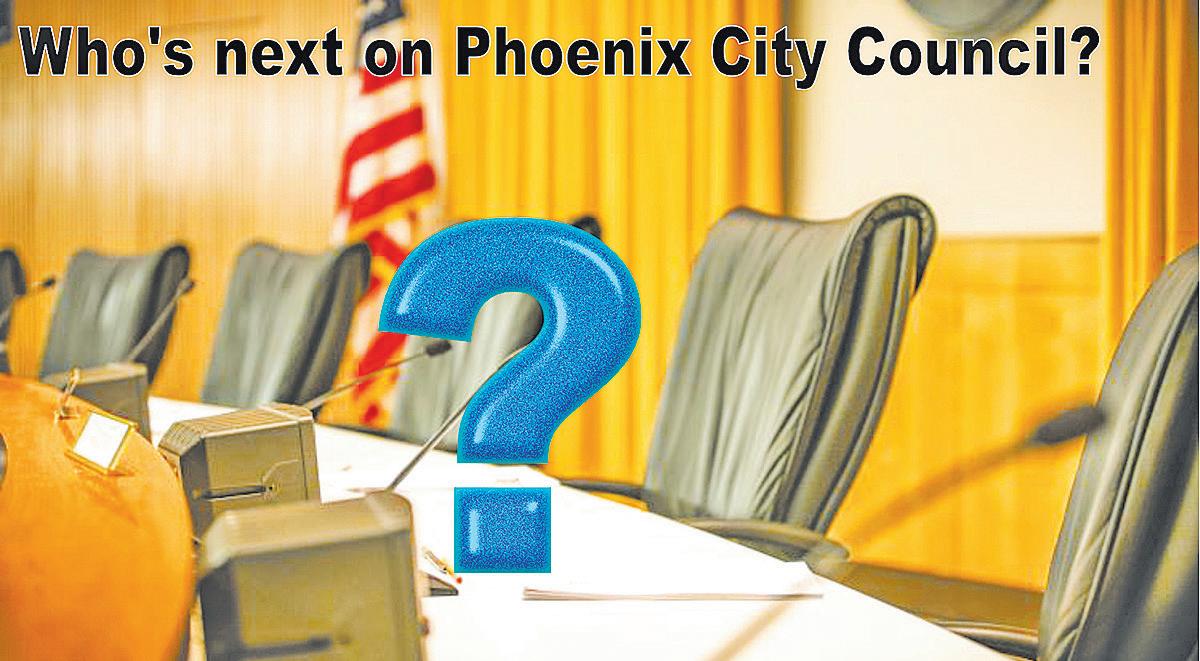
Because none of the eight District 6 candidates’ total votes exceeded 50%, Robinson and Stone are in the March 13 runoff election after garnering first and second place, respectively.
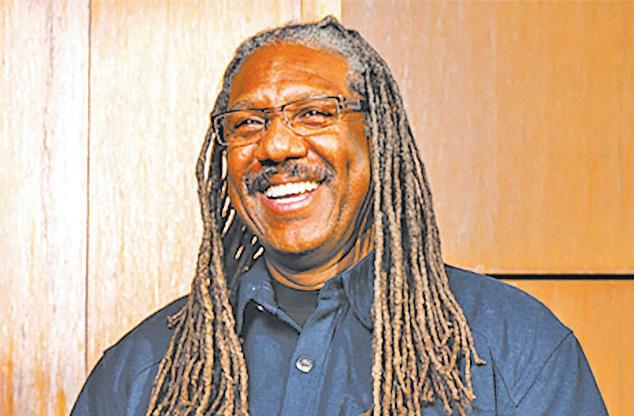
The Ahwatukee Foothills News today is publishing in their entirety questionnaires it sent to Robinson and Stone. AFN asked the candidates to limit their responses to 75 words to each question. The questionnaires will also be available at Ahwatukee.com. The questionnaires begin on page 18.

AFN also has invited both candidates to submit weekly columns that will begin running Jan. 18. With the exception of two columns for
which AFN asked the candidates to address a specific question, the candidates were invited to write on subjects of their choice. Those columns also will be posted to Ahwatukee.com. The goal of the questionnaires and columns is to give readers an unfiltered look at the candidates.
District 6, which includes Ahwatukee as well as Arcadia, Biltmore and north Central Phoenix, is one of two districts where runoff elections are scheduled. A runoff also is being held for District 8, which covers South
There are 123,772 active voters in District 6 – the second highest among the city’s eight districts. Of that total, 54,621 live in Ahwatukee, according to the most recent data available from the Maricopa County Recorder and the Phoenix City Clerk. According to final tallies from the Nov. 8 election, 89,688 District 6 voters cast ballots in the council race – a turnout of 73.9%.
Early voting for the election begins Feb. 15 and the last day to register is Feb. 13. The city will have voting centers for in-person voting available on March 11, 13 and 14.
Register: elections.maricopa.gov/voterregistration/register-to-vote.

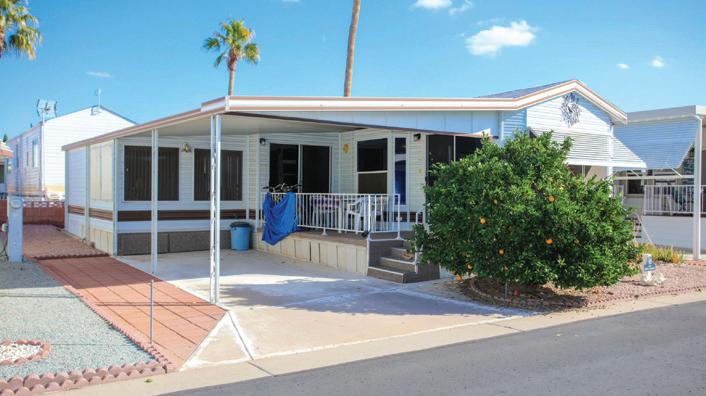





















































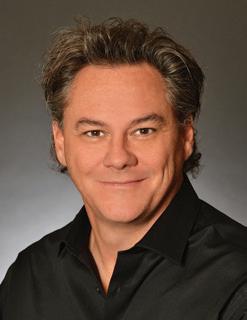
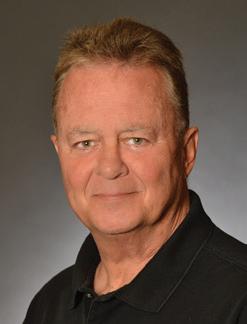
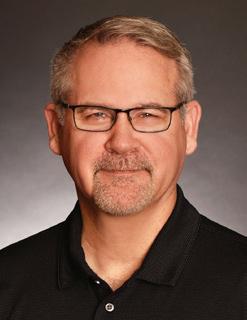

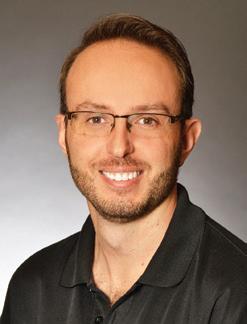

The Ahwatukee Foothills News is published every Wednesday and distributed free of charge to homes and in single-copy locations throughout Ahwatukee Foothills.
Times Media Group:
1900 W. Broadway Road, Tempe, Arizona, 85282
Main number: 480-898-6500
Advertising: 480-898-5624 Circulation service: 480-898-5641



National Advertising Director
Zac Reynolds 480-898-5603 zac@ahwatukee.com

Advertising Sales Representatives: Laura Meehan, 480-898-7904, | lmeehan@ahwatukee.com

Katie Mueller, 480-898-7909 kmueller@TimesLocalMedia.com
Classifieds/Inside Sales: TJ Higgins, 480-898-5902 tjhiggins@TimesLocalMedia.com


Steve Insalaco, 480-898-5635 sinsalaco@TimesLocalMedia.com
Executive Editor:
Paul Maryniak, 480-898-5631 pmaryniak@ahwatukee..com
GetOut Editor: Christina Fuoco-Karasinski, 480-641-4518 christina@TimesLocalMedia.com
Sports Editor:
Zach Alvira 480-898-5630 | zalvira@TimesLocalMedia.com
Design/Production Coordinator: Shannon Mead smead@TimesLocalMedia.com
Designer: Ruth Carlton | rcarlton@TimesLocalMedia.com
Photographer: David Minton | dminton@TimesLocalMedia.com
Reporters: Cecilia Chan. 480-898-5613 | cchan@@TimesLocalMedia.com
Circulation Director: Aaron Kolodny 480-898-5641 | aaron@phoenix.org
Distribution Manager Brian Juhl brian@TimesLocalMedia.com
Ahwatukee Foothills News is distributed by AZ Integrated Media, a circulation service company owned by Times Media Group. The public is limited to one copy per reader. For circulation services please contact Aaron Kolodny at aaron@phoenix.org..
The 2023 legislative session is being brought to you by the letter E – as in education funding and election issues.
These promise to be among the most contentious issues as lawmakers returned to the Capitol on Monday.
They’re certainly not all that is likely to be on the agenda.
Abortion issues remain a perennial subject. That is only enhanced this year by the fact that Arizona finds itself with a law on the books that hasn’t been enforced – and really hasn’t been debated – since 1973.
That is complicated by the fact that the Arizona Supreme Court still may have something to say about it despite an appellate court deciding that doctors can terminate pregnancies up to 15 weeks.
And while lawmakers approved $1 billion last year to find new sources of water, that is unlikely to be the end of the discussion. The desalination project that’s being pursued is not just costly and years away from fruition but has raised questions about the process being used to award a contract.
The most immediate issue, however, is education funding.
Lawmakers and former Gov. Doug Ducey made a big point last year of saying how much in new dollars was going into K-12 education.
To start or stop delivery of the paper, please visit: https://timespublications.com/phoenix/ or call 480-898-7901
To get your free online editiona subscription, please visit: https://www.ahwatukee.com/e-subscribe/
To submit a letter, please include your full name.
Our policy is not to run anonymous letters. Please keep the length to 300 words. Letters will be run on a space-available basis. Please send your contributions to pmaryniak@ahwatukee.com.
EDITORIAL CONTENT
The Ahwatukee Foothills News expresses its opinion. Opinions expressed in guest commentaries, perspectives, cartoons or letters to the editor are those of the author.
The content and claims of any advertisement are the sole responsibility of the advertiser. The Ahwatukee Foothills News assumes no responsibility for the claims or content of any advertisement.
© 2023 Strickbine Publishing, Inc.
Only thing is, they never addressed the fact that voters in 1980 approved an “aggregate expenditure cap,’’ an absolute limit on what the state can spend on education.
It is adjusted annually based on inflation and student growth. But the infusion of new dollars, coupled with a loss of students during COVID, has put the total allocated nearly $1.4 billion above what can be spent.
Republicans, including Ducey, promised a special legislative session, but not until a lawsuit over a tax hike was resolved. But even after that, they balked.

And then Arizonans elected Democrat Katie Hobbs as governor.
The result was that Ducey and Republicans, rather than live up to that commitment while they were in power in 2022, sought to pack any special session at the end of last year with other issues they knew that Hobbs would not sign once she took office.
That included demands like expanding the amount of money available in vouchers of state tax dollars for students to attend private or parochial schools.
But that proved unacceptable to not just Democrats, who provided the necessary votes for the budget, but some Republicans who said it breaks the promise.
Now the clock is ticking.
If lawmakers do not waive the limit by March 1, schools will have to cut approximately 17% of their budgets.
But all those cuts would have to be made in the months remaining in the fiscal year, essentially tripling the effect. And some districts have warned that could force schools to actually shut down.
For the moment, the new governor appears willing to wait to see if the House and Senate, which still remain under Republican control, will act on their own.
“I’m hoping that it will happen naturally,’’ she told Capitol Media Services. “But it needs to be the top priority and it needs to be taken care of.’’
Rep. David Cook, R-Globe, already has introduced a measure to waive the limit this year. But for the moment, he is the only one signed on.
And what of GOP leadership?
“We’ve had discussions,’’ he said. “And I’m very optimistic.’’
Cook said this is a particular problem for schools outside the major metropolitan areas.
“We don’t have a charter school every three miles,’’ he said. “And those small public district schools are the only system that we have.’’
Hobbs is likely to be less interested in what state lawmakers have to offer in the form of what some consider “election reform.’’
Sen. Wendy Rogers, R-Flagstaff, will head the Senate Elections Committee.
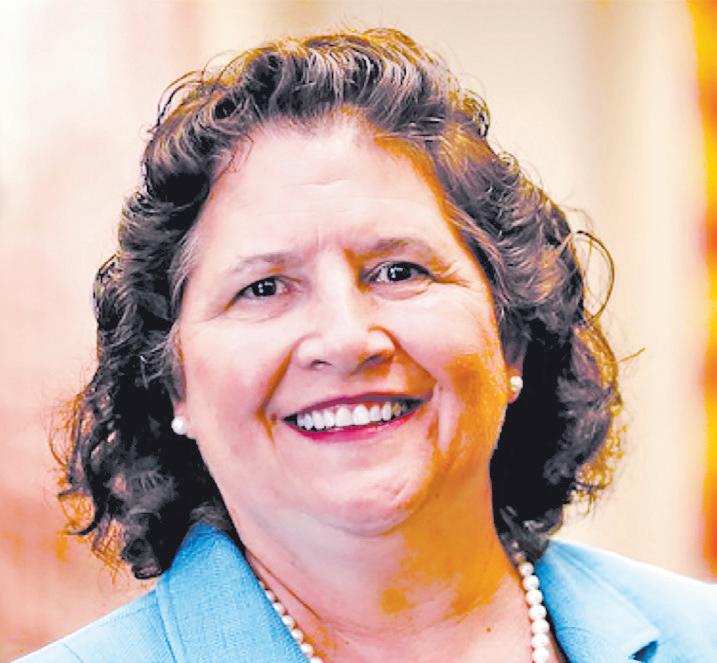
Rogers already was unhappy with election procedures even before the problems that developed on Election Day.
For example, she sponsored legislation last year to abolish early voting and to forbid the use of electronic voting and tabulating equipment. Neither got out of the Senate.
Rogers, in social media posts, has made it clear she believes the 2022 election was stolen from Kari Lake, even saying that Hobbs “knew the fix was in.’’

Look for legislation designed to address at least some of the issues that Lake contended resulted in erroneous election returns.
That starts with early voting.
Some Republicans contend, without any proof at all, that provides an opportunity for mischief as election officials can tally those early ballots and then figure how many fake ones they need to insert to alter the results.
Then there’s the related issue of whether early votes are reliable.
Lawmakers approved a ban on socalled “ballot harvesting’’ years ago, making it a felony to take someone else’s voted ballot to a polling place. The only exceptions were for family members,
those in the same household and caretakers.
But that still didn’t satisfy some, including Sen. J.D. Mesnard, R-Chandler, who put a measure on the ballot to require that an early voter provide not just a signature on an envelope but other identifying information like a driver’s license. Voters rejected that.
Lake separately challenged the practice in some counties of matching signatures on early ballots not with a voter’s registration but with other documents on file, like a request for an early ballot. But that claim was tossed when a judge said she should have brought it prior to the election.
Look for legislation on that this session.
And there is likely to be an effort to say that county supervisors have discretion in deciding whether to certify election results, an issue that arose after Cochise supervisors balked until a judge said they have no discretion under state law.
Potentially less controversial is a proposal by Maricopa County Recorder Stephen Richer to require early ballots to be submitted by the Saturday before the election. He said that will end the glut of same-day filings – about 290,000 in his county alone – that delays prompt election results and leads to accusations that something untoward is taking place in the count.
The incoming governor, however, already has signaled her opposition.
Lawmakers also return to face the question of what restrictions they want on abortion.
That hasn’t been an issue since 1973 when the U.S. Supreme Court took the issue away from states and ruled that
The all-Democratic, all-female delegation representing LD12, which includes Ahwatukee as well as parts of Chandler and Tempe, comprises Sen. Mitzi Epstein, who moved from her House seat of six years when Sean Bowie decided not to run again; and two Ahwatukee newcomers to elected office. (AFN file photos)

women have a constitutional right to terminate a pregnancy prior to fetal viability. That is generally considered somewhere between 22 and 24 weeks.
GOP legislators last year approved a 15week ban in anticipation of a revamped Supreme Court upholding a similar law from Mississippi. But the majority of the justices went further, overturning the 1973 decision and letting states set their own rules.
Planned Parenthood Arizona successfully convinced the state Court of Appeals that the newer 15-week law takes precedence. And the organization is not alone in that belief.
“This law was signed this year,’’ Ducey told Capitol Media Services after signing the bill. “I think that the law that you signed in 2022 supersedes 1973.’’
That case is likely now headed to the Arizona Supreme Court.
Hobbs wants to return the law to where it was before last year’s Supreme Court ruling, when abortions could be performed up until fetal viability, meaning 22 to 24 weeks. That also takes care of the problem that the 15-week law has no exceptions beyond that point in cases of rape or incest.
“That’s a difficult hill to climb, obviously,’’ she told Capitol Media Services. But Hobbs said she may have to settle for what she can get, meaning a ban after 15 weeks.
With little dissent, lawmakers last year agreed to set aside $1 billion over three years to find new water. And the law pretty much requires it be something from outside the state and cannot be from buying up water rights from farmers.
The 2023 legislative session got started Monday with perhaps the worst-kept political secret: Republican lawmakers are going to send bills to Democratic Gov. Katie Hobbs even knowing ahead of time she will veto them.


The frank admission by the top GOP lawmakers in both chambers came last week as they and their Democratic counterparts gave a brief overview of the upcoming session at a luncheon hosted by the Arizona Chamber of Commerce and Industry.
“We want to try to work with the governor,’’ said incoming Senate President Warren Petersen. The Gilbert Republican said he had set a record several years ago as the lawmaker who got the highest percentage of his bills signed by the governor.
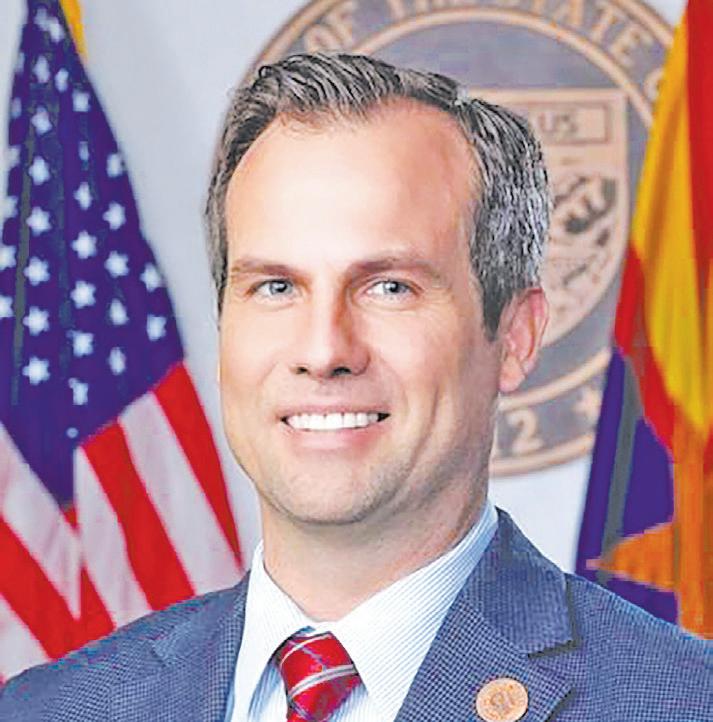

Petersen said every lawmaker has the same goal.
“How you have a high percentage of bills passed is you look at the landscape, you look at the legislators, you look at the chairs (of the committees through which the bills have to pass),’’ he said. And that calculus, Petersen said, includes the governor.
His record, however, was set when fellow Republican Doug Ducey was the state’s chief executive.
Now that situation has changed. But Petersen said that won’t affect the decision whether to transmit bills to the governor.
“There may be some bills that you do know that are going to get vetoed,’’ he said.
“I wouldn’t imagine there would be a million of those or a huge block of those,’’ Petersen continued. “But those may be important to advance your cause.’’

House Speaker Ben Toma, R-Peoria, agreed.
“I guess I’m stating the obvious at some point here,’’ he said. “But there will be bills that are going to be important for our caucus to get on the governor’s desk that are going to be important for her probably to veto.’’
What it comes down to, Toma said, is that Republicans and Democrats just don’t see some things the same way.
“It just highlights the difference of opinion on what is best for the state,’’ he said.
Neither GOP leader gave specific examples of what issues they are likely to advance even anticipating Hobbs’ rejection.
The confession of sorts came as no surprise to Murphy Hebert who is in charge of communications for the new governor.
“It seems to be how it works,’’ she said. But Hebert also said that lawmakers should not be surprised when those bills




































The legislation also revamped the little-known Water Infrastructure Finance Authority, which had existed mainly to provide grants for small projects, giving its new board, headed by a Ducey appointee, the power to negotiate.
But last month, even before the authority had a new director and without any formal bids or presentations, the board was presented with – and agreed to try to strike – a deal with IDE Technologies, an Israeli-based company with whom Ducey had met last summer.
In essence, the state would guarantee to purchase the water that would be produced from a plant that IDE would build on the Sea of Cortez and pipe into Arizona. WIFA, in turn, could resell that water to others.
IDE needs that guarantee to get loans for the plant that could cost more than $5 billion.
The cost to the state and water users, however, remains unclear, possibly up to $3,300 an acre foot – about 325,000 gallons of water. That is enough to supply anywhere from two to four homes per year, depending on the community.
It’s also more than 10 times what the

Central Arizona Project charges.
Not everyone who voted for the $1 billion appropriation likes the direction WIFA is going.
“This reeks of backroom deals,’’ complained Sen. Lisa Otondo, D-Yuma during an agency meeting. And Warren Tenney with the Arizona Municipal Water Users Association, which represents the state’s largest cities, said the plan was being rushed.
The practical problem for concerned lawmakers is that they gave up their right to veto WIFA’s actions. That was designed to keep politics out of it.
But they are not without remedies to get the board’s attention.
WIFA has received only its first of three payments. And the next Legislature is not legally bound to fulfill the commitment for two more made by previous lawmakers.

There is another concern: what some see as a lack of any emphasis on conservation as an alternative.
Even Hobbs said that while desalination may need to be part of a long-term solution -- a working plant is years away -- she believes that there needs to be a look at more immediate solutions, like saving and reusing what the state already has.
House of Representatives:
This year: 31 Republicans and 29 Democrats
Last two years: 31 Republicans and 29 Democrats
Senate: This year: 16 Republicans and 14 Democrats
Last two years: 16 Republicans and 14 Democrats
Deadline for adjourning this year: April 22 Adjournment last year: June 25 Length of last year’s session:- 166 days
Longest session: 173 days in 1988
Number of bills introduced last regular session (not including miscellaneous resolutions and memorials): 1,613
Number sent to governor: 392 Bills signed: 388 Bills vetoed: 4 Bills allowed to take effect without signature: 1
Veto record: 58, set in 2005 by Janet Napolitano
At Ahwatukee Dental Health, Dr. Amy Nordquist and her team are dedicated to providing each and every patient with the care and attention they need in the most comfortable way possible. Her time spent with you will always be thorough and focused on your dental concerns. Our team values personalized attention and long-term relationships with all of our patients. We can’t wait to meet you!





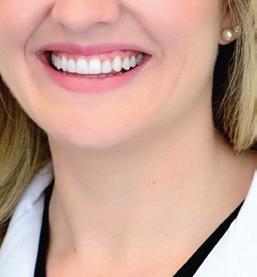






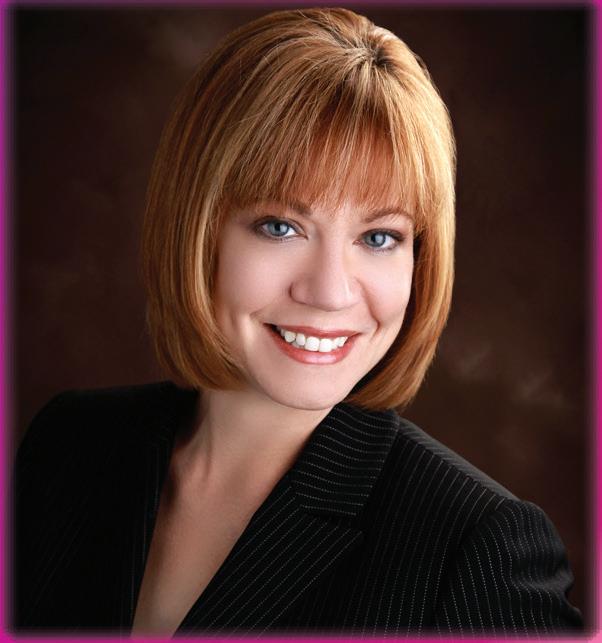 BY HOWARD FISCHER Capitol Media Services
BY HOWARD FISCHER Capitol Media Services
State lawmakers are once again wading into the area of the rights of transgender minors.
A new proposal by Sen. John Kavanagh, R-Scottsdale, would bar school employees from knowingly referring to a student by a pronoun “that differs from the pronoun that aligns with the student’s biological sex’’ regardless of the student’s preferences. Only if the adult first gets parental permission would that be permissible.



And Kavanagh already is planning to expand what has been introduced as SB 1001 to close what he sees as a possible loophole where teachers could avoid pronouns and instead address a student by the first name he or she prefers.
He wants state law to read that only a student’s given name or some variant could be used. So, someone named Edward could be addressed as Eddie or Ed.

But calling that student Emma or Evelyn would be breaking the law.

Kavanagh bills his measure as ensuring that parents know if their children are identifying themselves by a gender other than the one they were assigned at birth. That, he said, ensures the children can get the psychological treatment they may need to deal with depression and possible suicide.
But what it’s not designed to do, he told Capitol Media Services, is make it easier for a parent, informed of a child’s “gender dysphoria,’’ to get him or her the medical treatment needed to match the biological sex and gender identity.
“You’re talking to somebody who was a parent who wouldn’t let their minor child get a tattoo, much less change their gender,’’ Kavanagh said. “Those decisions need to be deferred to when an individual’s an adult and can make a mature decision.’’
His legislation comes less than a year after state lawmakers approved – and former Gov. Doug Ducey signed -- a measure to prohibit any form of “irreversible gender reassignment surgery’’ on an individual younger than 18, even with the



Scottsdale state Sen. John Kavanagh wants to ban schools’ use of pronouns that don’t reflect an individual’s birth gender. (Cronkite News)


consent of parents.
But to get the votes, proponents had to remove a provision that would have prohibited doctors from providing puberty-blocking hormones or any other hormone therapy to minors.
Ducey also signed another measure passed by the Republican-controlled legislature spelling out that anyone who is born a male cannot participate in intramural or interscholastic sports for females, regardless of whether she has fully transitioned.
Kavanagh, in discussing his new bill, acknowledged he has heard of no issues in Arizona schools with teachers using the “wrong’’ pronouns with students -- yet.
“It’s something that is spreading,’’ he told Capitol Media Services. “We want to nip it in the bud.’’
But Jeanne Woodbury, the interim executive director of Equality Arizona, said it’s a bad idea.
“Reactionary legislators are now trying to forcibly enlist teachers into their efforts to make schools inhospitable to trans and non-binary students,’’ she said. And Woodbury called it “an embarrass-
ment to good governance’’ for this to be the first measure introduced in the Senate for the 2023 session.
Bridget Sharpe, state director of the Human Rights Campaign, said Kavanagh is trying to make an issue out of something that’s not a problem.
“All that happens at the end of the day is that the kids feel ostracized,’’ she said. Sharpe said it also undermines the ability of trans students to believe they have “a trusted person at school’’ with whom they can speak.
“It’s really an attempt, we’ve seen it nationwide, to just kind of demonize these kids and saying that their pronouns don’t matter,’’ she said.
Kavanagh pointed out that his legislation would not preclude a teacher or other school employee from referring to a student using his or her preferred pronoun or even a name that doesn’t match the person’s “biological sex.’’

“It says they can’t do that unless the parent has given permission,’’ he said.
Kavanagh said there’s also a potential benefit in requiring teachers to check in with parents when a student makes such

a request.
That goes to the issue of gender dysphoria, generally described as a sense by individuals that there is a mismatch between their biological sex and their gender identity. More to the point, it refers to the distress that can result which can lead to depression and even suicide.
Kavanagh said alerting the parent could get the child necessary treatment.
“In fact, if the parents know about it and the child is receiving treatment, then calling a child a name or a pronoun that doesn’t align with their gender may, in fact, be contrary to their treatment,’’ Kavanagh said.
“These children are often depressed and suicidal,’’ he continued. “So the last thing that I want to do is keep parents, who are in a position to help the child, in the dark.’’
But he acknowledged, that “treatment’’ would be for the depression, essentially getting the child to be comfortable with his or her assigned gender, rather than any intervention, medical or otherwise, to help confirm the child’s perceived gender.
The legislation also is raising concerns

in the education community.
Marisol Garcia, president of the Arizona Education Association, said it comes even as the the state is losing thousands of teachers each year. And she said measures like this make it harder to convince more people to enter the profession, citing a conversation she had with some would-be teachers.
“It was their No. 1 priority: How do we stay in a state where we are constantly being politicized?’’ she said, with state government adding to the bureaucracy. “It’s just frustrating and angering.’’
Rep. John Fillmore, R-Apache Junction, actually offered a similar idea last session.






But his proposal only would have precluded school officials from requiring teachers and other staff from using a gender pronoun that differs from what is on a student’s birth certificate. It would not, however, have precluded someone from voluntarily honoring a student’s request, something that Kavanagh’s SB 1001 would outlaw.

Fillmore’s measure, however, did not even get a hearing in the House Education Committee to which it was assigned.
come back.
“Governor Hobbs has made it very clear she’s willing to use the veto stamp,’’ she said.


And not just any veto stamp.
Hobbs was given a veto stamp that once belonged to Janet Napolitano, the last Democrat to hold office, which apparently had been kept by one of the former governor’s aides. And he, in turn, presented it to Hobbs.
It comes somewhat used.
In her six years as governor – she quit in early 2009 to become Homeland Security secretary in the Obama administration – Napolitano vetoed 180 of the measures sent to her, including a record 58 in 2005 alone.





Mesa, AZ – When it comes to chronic pain and/ or neuropathy, the most common doctor-prescribed treatment is drugs like Gabapentin, Lyrica, Cymbalta, and Neurontin. The problem with antidepressants or anti-seizure medications like these is that they offer purely symptomatic relief, as opposed to targeting and treating the root of the problem. Worse, these drugs often trigger an onset of uncomfortable, painful, and sometimes harmful side effects.
cannot survive, and thus, slowly die. This leads to those painful and frustrating consequences we were talking about earlier, like weakness, numbness, tingling, balance issues, and perhaps even a burning sensation.
The drugs your doctor might prescribe will temporarily conceal the problems, putting a “Band-Aid” over a situation that will only continue to deteriorate without further action.
1. Finding the underlying cause
2. Determining the extent of the nerve damage (above 95% nerve loss is rarely treatable)
3. The amount of treatment required for the patient’s unique condition
Aspen Medical in Mesa, AZ uses a state-of-the-art electric cell signaling systems worth $100,000.00.


The number of treatments required varies from patient to patient, and can only be determined following an in-depth neurological and vascular examination. As long as you have less than 95% nerve damage, there is hope!
stainless steel appliances, new sink and faucet and a breakfast bar. New ceiling fans throughout! The master suite has a walk in closet, double sinks, and separate shower and tub (new shower head!) Master bedroom has its own Arcadia door exit to the back yard/patio area. New carpet! Guest parking conveniently located near the home. Walking distance to schools, grocery stores, restaurants and golf!
Listed for $825,000

The only way to effectively treat chronic pain and/or peripheral neuropathy is by targeting the source, which is the result of nerve damage owing to inadequate blood flow to the nerves in the hands and feet. This often causes weakness, numbness, balance problems. A lack of nutrients causes the nerves degenerate – an insidious
Thankfully, Mesa is the birthplace of a brandnew facility that sheds new light on this pressing problem of peripheral neuropathy and chronic pain. The company is trailblazing the medical industry by replacing outdated drugs and symptomatic reprieves with an advanced machine that targets the root of the problem at hand.
Th is ground-breaking treatment is engineered to achieve the following, accompanied by advanced diagnostics and a basic skin biopsy to accurately analyze results:
1. Increases blood flow

2. Stimulates and strengthens small fiber nerves
3. Improves brain-based pain
The treatment works by delivering energy to the affected area(s) at varying wavelengths, from low- to middle-frequency signals, while also using Amplitude Modulated (AM) and Frequency Modulated (FM) signaling
It’s completely painless!
THE GREAT NEWS IS THAT THIS TREATMENT IS COVERED BY MEDICARE, MEDICAID, AND MOST INSURANCES!!
Aspen Medical begins by analyzing the extent of the nerve damage –a complimentary service for your friends and family. Each exam comprises a detailed sensory evaluation, extensive peripheral vascular testing, and comprehensive analysis of neuropathy findings.
Aspen Medical will be offering this free chronic pain and neuropathy severity evaluation will be available until January 31st, 2023 Call (480) 274-3157 to make an appointment.
Due to our very busy office schedule, we are limiting this offer to the first 10 c allers Y OU DO NOT HAVE TO SUFFER ANOTHER MINUTE, CALL (480) 274-3157… NOW!!
We are extremely busy, so we are unavailable, please leave a voice message and we will get back to you as soon as possible.
As displayed in figure 1 above, the nerves are surrounded by diseased, withered blood vessels. A lack of sufficient nutrients means the nerves
Effective neuropathy treatment relies on the following three factors:
Depending on your coverage, your peripheral neuropathy treatment could cost almost nothing – or be absolutely free.
Aspen Medical 4540 E Baseline Rd., Suite 119 Mesa, AZ, 85206


























































measures coming into place.”
Right now, the only way the Valley could meet the elevated Environmental Protection Agency’s ozone limits would be taking all four million gasoline-powered motor vehicles in Maricopa County off the road by August 2024, Franquist said.
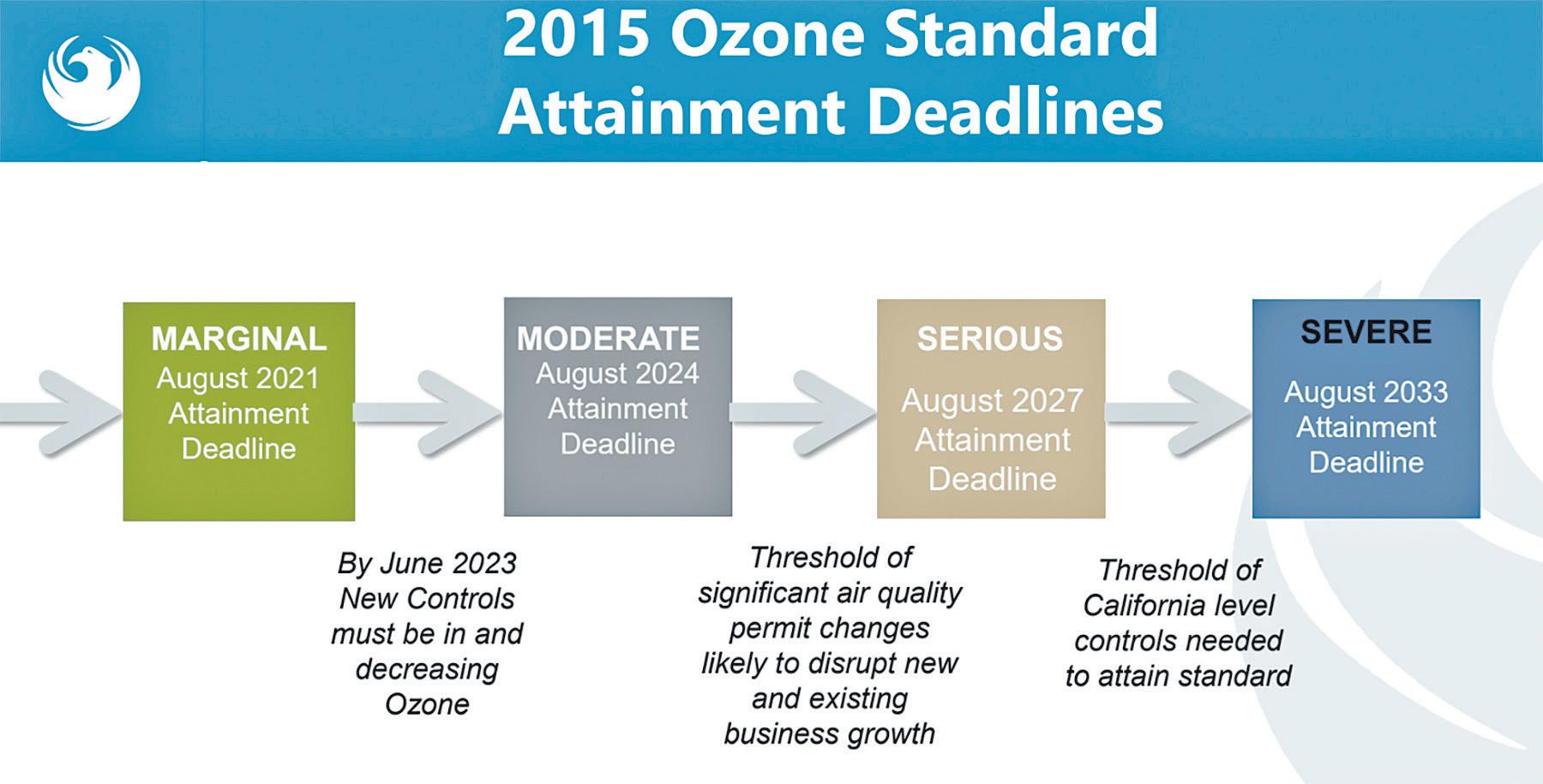
And even then, he added, “we would barely make the standard.”
And since that’s a virtual impossibility, the cost of meeting tougher air quality standards could result in lost industrial development opportunities as businesses avoid relocating or expanding here rather than pay for expensive federallyimposed, tougher emission controls.
That cost would extend beyond the Valley since tougher emission standards could even be imposed for trucks and cars that come into the region regularly from other parts of the state and country that may not have similarly tough standards, he said.
And it also could be reflected in other ways, Franquist said, such as higher construction permit fees and more stringent vehicle emissions inspection staandards.
“It impacts us by aborting businesses,”



he said, noting that the Taiwan Semiconductor Manufacturing Co. plant in north Phoenix theoretically would need a permit and be operating before the new
If you thought you have been to a Mexican restaurant lately you probably need to reconsider and visit La Casa De Juana in Ahwatukee. The fare is authentic Mexican, and when we say authentic we mean it, unlike many of the restaurant chains that call themselves Mexican. Upon entering you’ll be dazzled by the colorful décor, the tables and chairs are beautiful, Mexican painted murals, colorful banners hanging from the ceiling and the gracious service with warm orange and yellow tones echoing throughout the restaurant will make this your favorite Mexican restaurant. With great lunch and dinner specials, we have Happy Hour Monday - Sunday from 2 - 6 PM with $5 House Margaritas, $4 Beers, $5.95 Cheese Quesadilla, $8.95 Chunky Guacamole and $9.95 Juana’s Nachos. Live music every Thursday night in our Ahwatukee location and every Friday at our Tempe location. In conclusion The flavorful salsa, the delicious margaritas, the extraordinary and well-priced food will definitely keep you coming back.


Don’t hesitate to stop by the Ahwatukee location 3941 E. Chandler Blvd. (S/W corner Chandler & 40th St) to make your next reservation call 480-823-2834 www.juanashouse.com
standards kick in. “Now, a $40 billion investment: I think the White House gets involved and I think (it) comes here.”
Vice Mayor Yassamin Ansari seized on that example, saying “the hallmark example of an incredible foreign investment” would be scuttled because “we are dangerously close to reaching serious non-attainment, which means that those businesses would not be able to come here after 2024.”
“Non-attainment” is the classification that the EPA gives metro areas that fail to meet air quality goals. Other metro areas already have studied the economic impact of non-attainment and have projected staggering losses in future economic growth.
For example, Franquist said, the Okla-

homa City metro area faces an economic loss of as much as $15.2 billion over the next 20 to 30 years for violating tougher federal air quality standards. Corpus Cristi, Texas, estimates a loss of $600 million to $1.7 billion a year in economic activity for failing to meet impending EPA ozone standards.
“We have kind of a table of increasing stringency in programs as we don’t meet the standard,” Franquist said. “So obviously, as we don’t meet those standards, those programs become more stringent and there’s more of them.”
Franquist said the culprit in all this is the ozone level.
While Maricopa County has actually













































done a good job reducing many air pollutants, he said, ozone levels have been aggravated in large part by things beyond its control – namely, forest fires in both Arizona and California and the Valley’s average 300 days of sunny weather.
“Unlike some pollutants, like carbon dioxide – which is a direct pollutant that comes from your tailpipe or from an industrial stack,” Franquist explained, “ozone is considered a secondary pollutant. So it actually requires volatile organic compounds.”
And those compounds react to the sun’s ultraviolet radiation, adversely affecting air quality.
Franquist produced a chart showing how wildfires in Arizona and California have adversely impacted air quality, posing a growing health risk to vulnerable adults and even more children.
“This is what our children are breathing,” he said. “What most folks don’t realize with children – they do breathe in the same amount of air as an adult. They just breathe faster than we do. So they actually take in these pollutants more than we do.”
Franquist said the Valley’s future ability to meet federal air quality standards has been crippled by former Gov. Doug Ducey’s veto last year of a bill that would have asked the public to vote last November on an extension of the half-cent gas tax that funds a variety of rapid transit and road improvement projects.

While the Legislature could again vote to put Proposition 400 on next year’s ballot ahead of the tax’s expiration in 2025, the uncertainty currently surrounding it threatens a number of projects already on county and municipal drawing boards – including an expansion of public transportation aimed at curbing car traffic.
Franquist praised Phoenix for being “a fantastic leader” in programs aimed at reducing ozone pollution – mainly involving its multi-million-dollar investment in replacing a large portion of the city’s gas-powered vehicles such as fire engines and garbage trucks with electric ones and its aggressive expansion of bus and light rail routes.
But many of those city vehicles won’t be replaced until 2028 – well beyond the federal deadline for ozone reduction.
Franquist also warned, “There’s no sil-






ver bullet in terms of reducing ozone in one different control program. It takes a lot of different control programs working together to actually reduce ozone.”

“I think it’s important that we continue to get the word out to both the public and to our legislators that this is important for our economy, but it’s absolutely important for our public health,” he added, conceding the ozone control programs “are not cheap to implement.”
Franquist’s message provoked Ansari to express alarm about the impending air quality measures and the region’s attitude toward them.
“We are treating them as though they’re not urgent, and they’re not priorities and they don’t have financial implications even though they really, really do and they will hurt us economically,” Ansari said. “So I feel very strongly that we need to be doing a lot more than we have.”
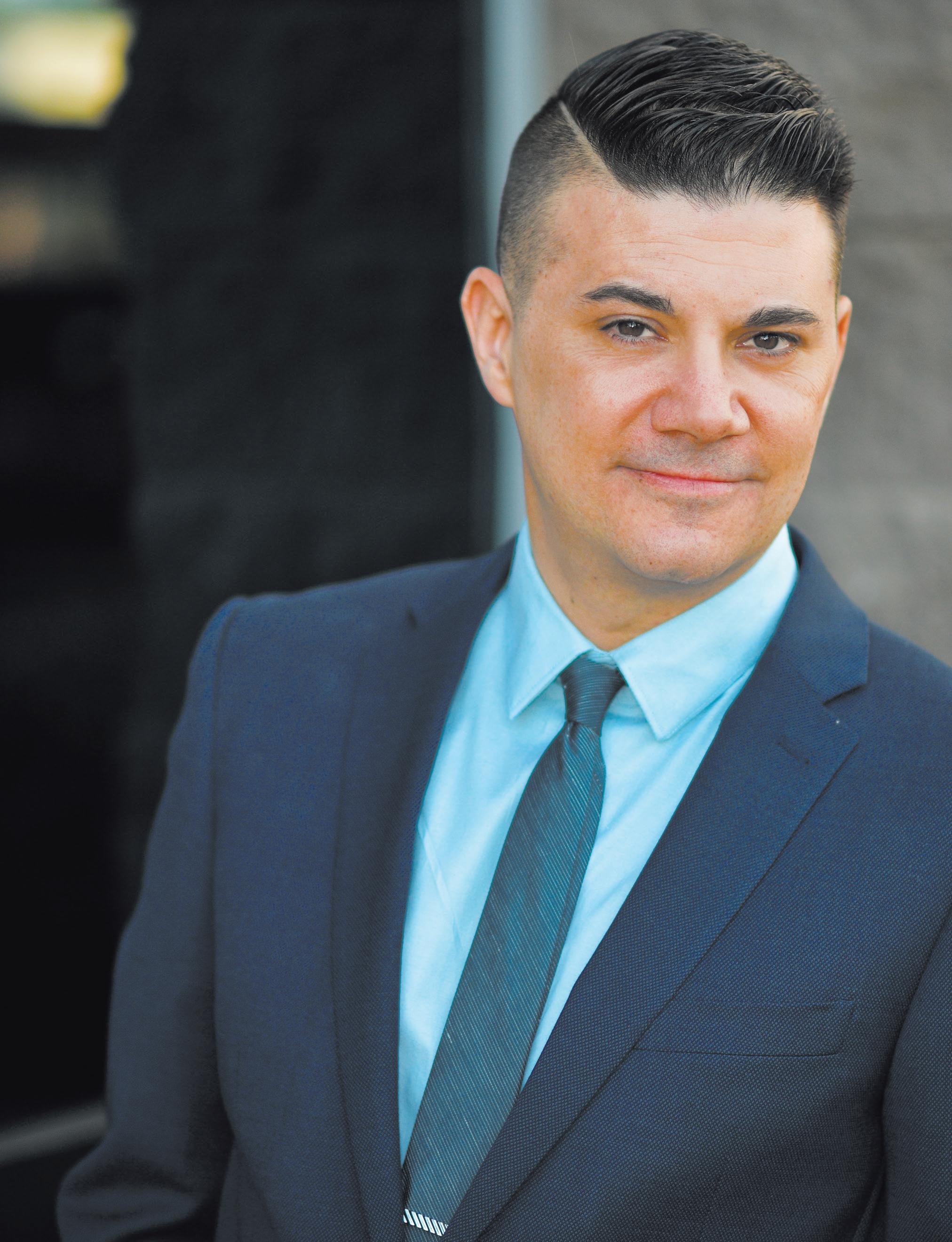


















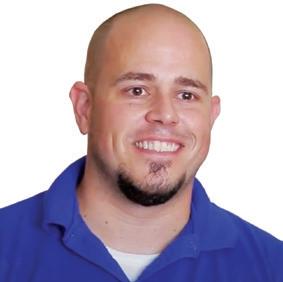
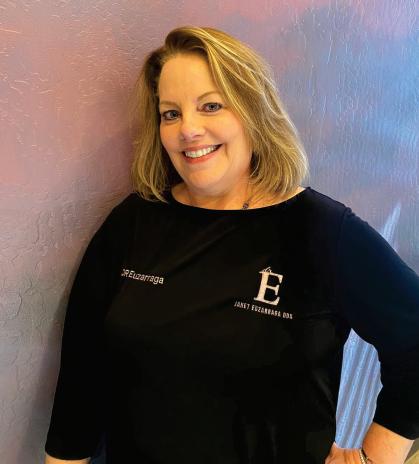


































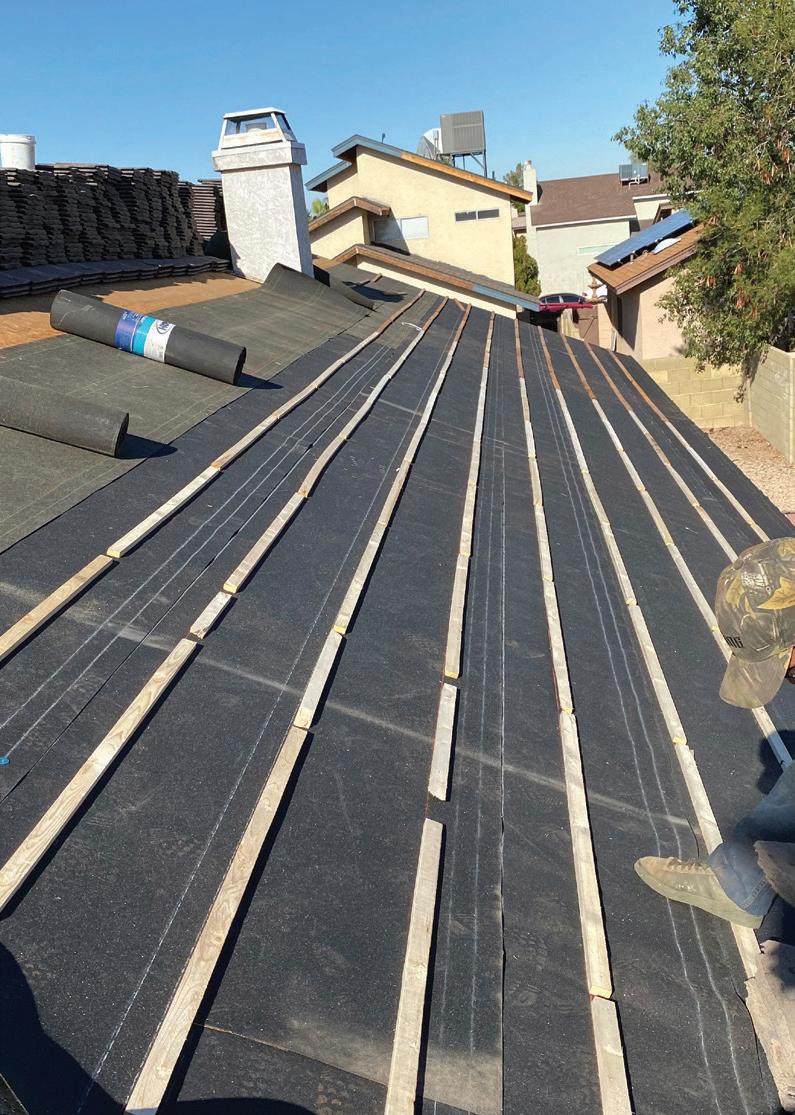










KEVIN ROBINSON
Age: 63
Current occupation: Retired law enforcement officer/Currently a lecturer at Arizona State University.
Community involvement: Arizona Judicial Council (Board Member), Arizona Police Officer Standards and Training Board (Board Member), Ronald McDonald House Charities of Central and Northern Arizona (Board of Directors and Board President), Tuition Assistance for Police Survivors (TAPS) Program (Board Member), Greater Phoenix Urban League, Anti-Defamation League, Sigma Pi Phi Fraternity (Executive Board Member), and The New Life Center Domestic Violence Center (President’s Leadership Council).
Community involvement in Ahwatukee: While assigned as the Operations Lieutenant in the Planning & Research Bureau of the Phoenix Police Department, I worked closely with the Ahwatukee community as we respond-
SAM STONE Age: 47
Current occupation: Policy Specialist Community involvement: Former D6 Chief of Staff Community involvement in Ahwatukee: Involved in supporting various citizens groups throughout Ahwatukee.
Education: Lewis & Clark College
Why are you running for City Council?
Phoenix is at a tipping point: we can either continue following current policies mirrored from other statespolicies that have badly degraded our greatest coastal cities - or we can focus on developing and implementing truly local solutions to our biggest problems, including crime, roadway safety, homelessness, and housing. I’m running to fight for those local solutions and the opportunity to keep (and improve) the Phoenix we all know and love.
Why are you the best candidate for the District 6 Seat
ed to community concerns about having a more significant police presence in the Ahwatukee/Foothills community.
I was tasked with leading the police department’s efforts in locating temporary, as well as, a permanent location for the police department in Ahwatukee. I was involved with leasing the first police site, a store front facility, at 48th Street and Ray Rd, the second temporary site behind Phoenix Fire Station #43 at 40th Street and Chandler Blvd., and ultimately the current facility at Pecos Park.
Education: B.A. - Management, M.P.A - Master of Public Administration, F.B.I. National Academy, F.B.I. National Executive Institute, University of Southern California Delinquency Control Institute, University of Denver Rocky Mountain Leadership Program, and Anti-Defamation League Advanced Training on Extremist and Terrorist Threats.
Why are you running for City Council?
I’m a nerd. A wonk - the guy politicians keep in the back room writing position papers and exploring policy solutions. I’ve spent the better part of the last 5 years developing solutions for Phoenix - to address our homelessness crisis, improve roadway safety, better support our first responders, reduce the cost of housing, and more – that I believe will improve conditions for all our citizens.
What credentials/experience make you the best person for the council seat?
I served for almost 5 years as staff chief for Sal DiCiccio, and am deeply versed in all areas of city operations. More importantly, Ahwatukee needs someone unafraid to hold the council accountable. Regardless of the outcome of this race, Democrats will have a super-majority at City Hall. We don’t need another automatic vote for their agenda, we need someone to push back the worst ideas, find ways to make the rest work better – that’s what I will do.
What are the three city-wide issues you want to address in 2023?
I spent 36 years serving the citizens of Phoenix as a police officer and I see serving on the city council as a continuation of that public service. I have a proven track record of effective communication, problem solving and coalition building. Simply put, I know I can make a positive difference, that is why I’m running for City Council.
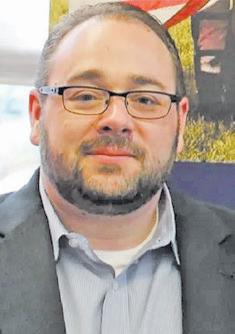
I believe, as a 49 year-long resident of Phoenix, 26 year-long resident of District 6, a 36 year veteran of the Phoenix Police Department, and nonprofit leader and board member that I have an understanding and resolve to effectively deal with the challenges the City of Phoenix, our neighborhoods, and residents currently face and will face in the future

What credentials/experience make you the best person for the council seat?
Along with my responses to the two
Affordable housing, homelessness, and public safety are my top priorities. And while we won’t be able to “solve” issues that big in a year, we can make enormous progress with some simple changes to city code and ordinances – addressing homelessness by leading with services, reducing unnecessary time barriers and regulations that drive up the cost of new housing, and improving working conditions and benefits for police officers so that we can recruit the numbers we need.
What are the top three issues facing Ahwatukee specifically and how would you try to address them this year?
1. Roadway safety: perform traffic studies at 17th & Chandler, 17th & Liberty, and a few other intersections. Pursue roadway changes, improved lighting in those areas to reduce accidents. Hire more cops.
2. Add a Fire Station / Police Substation: on the West end of Ahwatukee using development and impact fees from the new construction going in there.
3. Homelessness: push to shift our
previous questions, I would add I understand and know the community, its neighborhoods, and its residents. I’ve worked successfully within the City structure with every City Department to solve problems and address a variety of issues raised by citizens.
What are the three city-wide issues you want to address in 2023?
1. Public Safety – ensure that the funding for police and fire services continue to be a top priority. Request a review and evaluation of both departments 5, 10, 15, and 20 year strategic forecast. Placing an emphasis on recruitment of qualified diverse personnel.
2. Water Security – develop policy and management that has a goal of ensuring attainable long-term groundwater supply for the City.
3. Affordable Housing & Homelessness – ensure that the opportunities for partnerships with non-
ROBINSONapproach to lead with services and improve treatment & recovery options to reduce our growing homeless population.
What two things is City Council doing right and why?
1. Water: as a state, Arizona is in a water crisis, but due to excellent planning and management, Phoenix has more than enough water available to support our growing population for 100+ years to come.
2. Parks & Recreation – Phoenix has done a magnificent job of managing, expanding, and improving our best-in-the-nation urban park system. I still think we need more pickleball courts, more fields, etc.but the city has excelled in delivering service in these areas.
What two things is City Council doing wrong and why?
1. Planning & Development Services – simply put, the office is in crisis. It takes forever for even the simplest plan review or inspection.
profit organizations and private companies are explored.
What are the top three issues facing Ahwatukee specifically and how would you try to address them this year?
Based on what citizens in Ahwatukee have told me over the past year of my city council campaign, the top three issues continue to be public safety, water security, and affordable housing. I would address the issues by requesting reviews and evaluations of the police and fire departments, developing policy and management structures ensuring attainable groundwater supply, and exploring public-private partnerships addressing affordable housing shortages.
What two things is City Council doing right and why?
I have been critical of the City Council (past & present) for allowing the number of sworn officers and firefighters, who protect our neighborhoods, to erode over the past decade. It has resulted in increased response times
from page 18
P&D is still remote working – we need them back in the building. And we need to immediately expand outside contracting of engineering services to clear the backlog the department is facing.
2. Homelessness – current approaches to homelessness have not achieved the intended results, and are enabling, not addressing chronic street homelessness. It is more humane to push people into treatment than it is to continue to ignore them on the street. We need to work with the state and county to significantly expand diversion and treatment services, provide controlled & structured camping or semi-permanent tent options for those who absolutely refuse treatment, then enforce a ban on urban camping citywide.
Has Phoenix done enough to address its public safety pension debt?
If not, what do you think should be done to accelerate paying it off?
for service. However, I must applaud the city council for reversing its past mistake by making efforts to begin fully funding these departments and increasing officer pay that is now the highest in the valley.
As your city councilman I will make sure that this does not happen again on my watch. Public safety will always be my top priority and I will make sure it will remain so with my future colleagues as well.
The second area that I believe that the city has gotten right is to create a business-friendly climate that includes being tax friendly, making it easier to do business in the city and to strengthen the overall fiscal outlook for the city. However, it is very important this same dedication and commitment cascades to our small businesses as well.
What two things is City Council doing wrong and why?
The city council is still trying to find the right balance to address the multifaceted issue of homelessness in our city. We have seen how this issue has grown significantly throughout our city. It is no longer a central city issue.
We have seen this issue spread to ev-
Phoenix missed a golden opportunity when the city received over $1.5 billion in two rounds of federal COVID funding to use some of those monies to significantly reduce our unfunded pension obligations.
Every year for the next 22 years, the amount Phoenix is paying for those debts will rise, with serious impact on our ability to provide services our residents need. I would like to set a policy where every year that we have a surplus, we divide it in three: one-third for debt reduction, a third for one-time infrastructure investments, and one third which could be used for ongoing service expansions.
What three opportunities must the city take advantage of in 2023? How might Ahwatukee benefit from them?
1. Super Bowl – great opportunity for our local hotels, restaurants, and shops.
2. Homelessness – there is real movement for the first time in years to do something about a system that is spending a ton of money, with-
ery district in our city. As your elected councilperson I will be relentless in addressing a solution to this vexing problem by bringing all the key stakeholders, including neighborhood leaders, to help forge a comprehensive approach that will address this problem holistically.
The second issue that I believe the city council has gotten wrong is the diminution of our neighborhoods. I believe some of the policies have had unintended consequences on the quality of life in our neighborhoods.
As your elected councilperson I will apply a test of a neighborhood bill of rights on all policies that I am considering for adoption. If the proposed policy will have a negative impact on a neighborhood, then I will not support it.
Has Phoenix done enough to address its public safety pension debt?
If not, what do you think should be done to accelerate paying it off?
Yes and No…Phoenix leadership has previously done what it thought was best, but I believe a more aggressive plan should be adapted to pay down the debt. These debt obligations have a direct impact on the city budget in ev-
out doing much to help people. We can turn that around this year.
3. One-time revenue from Taiwan Semi – Ahwatukee is too often forgotten by city leaders, and capital needs have accumulated. TSMC’s construction is going to generate hundreds of millions in one-time revenues. Some of those funds need to pay for improvements in Ahwatukee, too.
As a city council member, how would your office specifically try to help the Ahwatukee business community? Please be specific.
Expand ALEX Bus service – the Ahwatukee Local Express is a valuable service to businesses in the area whose workers need better options for public transportation, and should be expanded in both hours and frequency of service.
Two, as mentioned above, permitting in Phoenix has become a mess, and is costing business owners significant sums of money due to delays before they can open – we need to get that straightened out ASAP.
Three, make sure we have more first
ery category.
Keeping in mind that credit rating agencies and lenders place strong consideration on the funding plan and funding levels of the City’s pension system when determining their view of the overall financial health of the City.
What three opportunities must the city take advantage of in 2023? How might Ahwatukee benefit from them?
1. Greater Opportunities for Economic Development
2. Government Grants/Subsidies Related to Electric Vehicles
3. Growing High-Tech Industry Moving to Phoenix
Ahwatukee can best benefit from these three opportunities by ensuring that its elected officials at the city, county, state, and federal levels work collaboratively with residents, small businesses and the Ahwatukee Foothills Chamber of Commerce to be aware of, and take advantage of, each of these programs.
I have already met with the majority
ROBINSONresponders on duty in Ahwatukee to answer calls in a more-timely fashion at both homes and businesses, ensuring the safety of residents and employees alike.
What do you think you can do as a councilmember to get the city Parks & Rec department to complete Desert Foothills Park?
This is one of those situations where, frankly, you need someone willing to pitch a fit who won’t take “no” for an answer. I helped pickleball players last year get some multi-use improvements to the tennis courts at Desert Foothills, but the park is still a half-developed embarrassment, with far more room for amenities than we are making use of.
Years of polite requests have been ignored. I’m criticized sometimes as a disruptor – but this is a perfect example of when you need a disruptor, not another rubber stamp.
Pickleball fans in western Ahwatukee contend they are underserved. Is there something you as a
of the elected officials who represent Ahwatukee. I recognize that establishing collaborative partnerships will allow me to be most effective in my role as D6 Councilman and benefit the Ahwatukee community.
As a city council member, how would your office specifically try to help the Ahwatukee business community? Please be specific.
Having already met with Andy Hayes, Ahwatukee Foothills Chamber of Commerce CEO, and several small business owners in Ahwatukee, I have heard firsthand what concerns they have when it comes to conducting business with the City of Phoenix. As a result of these meetings, I have learned that start-up costs, operating fees, and renewal fees continue to climb.
These costs have a tremendous negative impact on small businesses being successful. I will continue to meet with chambers and small business owners and work towards reducing these costs and streamlining permit processes.
What do you think you can do as a councilmember to get the city Parks & Rec department to complete Desert Foothills Park?
I believe in this situation the facts will speak for themselves, the number of people currently living near, and the number of new homes projected for that part of Ahwatukee demonstrates that the completion of the park should be a priority. I will ask the City Manager to provide me with completion projections and any suggestions his staff might have to alter (for the better) the timeline for the park.
Pickleball fans in western Ahwatukee contend they are underserved. Is there something you as a councilmember can realistically do for them?
As a husband of a die-hard pickleball player I understand the importance of the sport to those who play it for sport and physical activity. As one of the fastest growing sports in the country, I believe there are opportunities for public/ private partnerships that could easily address this concern. As your elected councilman I can promise that this is
an issue that I will pursue. Besides, my wife will (and has) insisted upon it.
The 2023 GO bond issue allocated $50 million for arts and culture while deferring inclusion of a third fire station for far west Ahwatukee. Do you agree with that decision?
No, not completely. Arts and Culture are vital to our community, it’s what makes a city vibrant. However, having a strong public safety background, I understand better than most the importance of maintaining low public safety response times.
The western part of Ahwatukee needs a fire station and it’s a priority of mine to work to make that a reality. I am honored to have earned the endorsement of the Professional Fire Fighters of Arizona and will continue to make public safety a priority.
Do you think Ahwatukee needs additional police patrols and if you do, given the department’s manpower situation and the city’s many fiscal challenges, how would you propose it be done?
Yes, Ahwatukee would benefit from
additional police patrols, especially traffic (motorcycle) officers. Advocating for increased public safety funding will always be a priority with me. The adoption of technology to reduce officer workload would increase officer availability (patrol) time. Advocating for greater technological resources for the police and fire departments will always be a priority with me.
How would you assess your relationship with the current members of City Council insofar as your ability to wrangle support for programs/ support in District 6? Do you have a relationship with any and, if so, who specifically?
Over the years I have had the opportunity to work with Mayor Gallego, Councilmembers Waring, Stark, Pastor, and DiCiccio experiencing a positive and professional relationship with each of them.
When I decided to run for City Council, I met with Councilwoman O’Brien and Councilwoman Ansari and I believe that the foundation has been es-
councilmember can realistically do for them?
Pickleball is the fastest growing recreational sport in America. We need to add about a dozen new dedicated pickleball courts at Desert Foothills Park (and more throughout other parts of the city). The expense is minimal, the use is maximal, this is one of the best investments we can make in our flatland parks, and one I’ll be pushing for from day 1.
The 2023 GO bond issue allocated $50 million for arts and culture while deferring inclusion of a third fire station for far west Ahwatukee. Do you agree with that decision?
Not at all. Ahwatukee needs that station. Emergency response times in large parts of the community are far too high. It was an absolute travesty that the safety needs of Ahwatukee were once again brushed aside in favor of massive handouts to politicallyfavored insiders.
Do you think Ahwatukee needs additional police patrols and if you do, given the department’s manpower situation and the city’s many fiscal challenges, how would you propose it be done?
Yes, absolutely we need more police patrols in Ahwatukee. In the last few years, but especially since the completion of the 202 South, crime has risen, drivers are out of control, and we don’t have enough cops on patrol to properly protect the community. All that said, anyone who tells you there is an easy or quick answer to this crisis is lying. We do not have enough officers to adequately support public safety anywhere in Phoenix. Fixing that will primarily depend on the actions and words of the city council over the next few years. The applicants we need simply will not be there unless this council demonstrates their consistent and clear support for our officers. My opponent is a former police officer, yes. But in 2020, he was quick to embrace the anti-police protest movement. I have never and will never waiver in my support for the Phoenix Police Department and hardworking
men and women who wear the uniform.
How would you assess your relationship with the current members of City Council insofar as your ability to wrangle support for programs/ support in District 6? Do you have a relationship with any and, if so, who specifically?
Outside of the public view, my experience is that everyone at City Hall gets along fairly well. Carlos Garcia is a great guy; we just disagree about everything politically. Laura Pastor and her office I consider friends, especially Michael Petersen-Incorvaia, owner of the most spectacular shoe collection in the history of City Hall. Betty Guardado is a fierce fighter for her constituency, and we agree on far more than most people would realize. Jim Waring is someone I always enjoyed working with, and admire.
Housing affordability is a much discussed challenge facing the Valley in general and Phoenix in particular. This is. two-part question: How would you assess what the city is currently doing to make housing avail-
able for working families?
Phoenix’s current approach to having enough low-income and workforce affordable housing largely amounts to grandstanding in public while privately praying someone else comes along and solves the issue for us. Worse, Phoenix’s labryrinthine bureaucracy and endless permitting delays are adding enormously to the cost of every unit of housing built in our city.
What would you advocate be done?
Make it cheaper, easier, and faster to build housing. Government subsidized low-income units currently cost Phoenix almost twice as much to build as it costs private developers to build luxury housing – over $350,000 per apartment - so we’re never going to have enough money for the city to solve the problem that way. We must make workforce affordable housing profitable for developers by eliminating the time delays and unnecessary regulatory requirements that are currently baked into our codes.
Peripheral neuropathy is a condition that involves damage to the nerves in your feet. Symptoms include muscle cramping, difficulty walking, burning, tingling, numbness, and pain. In many cases, it’s caused by diabetes, but poor circulation can also cause these symptoms or make them worse.
Poor circulation or PAD (peripheral artery disease) is caused by the buildup of fatty material inside the arteries, limiting the amount of blood that
passes through them. “Blood brings oxygen and nutrients to your legs and feet which they need to stay healthy,” explains Dr. Shahram Askari of CiC Foot & Ankle. “If you have cramping, leg pain, or non-healing sores, you could have PAD.”
The good news is specialists are able to treat PAD with a minimally invasive procedure in an office setting. Using x-ray imaging, Dr. Joel Rainwater, an interventional radiologist at Com-
prehensive Integrated Care, is able to go into the bloodstream through a tiny nick in the skin to see if there is any plaque buildup.
“We’re able to see if there is a blockage and then remove it with special instruments,” explains Dr. Rainwater. “Once the plaque is removed, blood flow improves.” Patients are home within hours and back to everyday activities with almost no downtime and no stitches. Medi-

care as well as most insurance plans cover treatment.
If you’re just realizing that you may be suffering from neuropathy or poor circulation, make an appointment to see a doctor. Or, if you’re not finding relief from medication or treatment, a second opinion may be helpful to determine the cause of the tingling, cramping, pain, or numbness in your feet.

Dr. Askari and Dr. Rainwater can be reached at 602-954-0777.

tablished for a positive and professional working relationship in the future. As for the two remaining Councilmembers that I have not had the opportunity to meet, Garcia and Guardado, I will endeavor to forge a positive professional relationship with them as well.
Housing affordability is a much discussed challenge facing the Valley in general and Phoenix in particular. This is a two-part question: How would you assess what the city is currently doing to make housing available for working families?
Phoenix has a nine-point housing plan aimed to create or preserve 50,000 homes by 2030. I believe it is an attainable goal and plan, but we need to be doing much more and quickly. The City taking proactive steps by leveraging city-owned land and working with developers and builders in public-private partnerships is probably the most effective way to make housing available and
affordable for working families.
Continuing to work with private, state, and federal agencies when it comes to helping families attain housing should continue to be a priority with the City.
What would you advocate be done?
I would advocate that the City continue to follow, and improve where/ when practical, the Housing Phoenix Plan. Its goal of creating or preserving 50,000 homes by 2030, and increasing the overall supply of market, workforce, and affordable housing is essential.
What city department needs closer scrutiny of its spending and spending decisions and why?
Having always been fiscally conservative, I believe that oversight of all city departments is a necessity in order to maintain public confidence in city government. I’m currently not aware of a specific department requiring closer scrutiny because of spending decisions. However, based on recent news, I do believe that any program that allows city employees and/or elected of-
ficials to receive perks like attendance at sporting events or concerts should be closely monitored if not eliminated. From the onset of my campaign I have promised to deliver on an ethics commission, an issue that has been voted down in the past. I will be the deciding vote to push such a measure through.
Would you support water conservation measures that would impose use restrictions on households and businesses? What use restrictions would you specifically support and why?
At this time, no, I would not support water conservation measures that would impose use restrictions on households and businesses. However, I would suggest the City continue its educational outreach to the general public allowing for a greater understanding of the overall problem. An incentive-based program could be a use restriction that I could support.
What would you do to strengthen the relationship between Ahwatu-
kee’s HOAs and your office?


Once in office I will make it a matter of routine to meet with the HOAs on a regular (monthly or quarterly) basis. Such opportunities will allow me the benefit of knowing and understanding the concerns that specific neighborhoods experience. I see my responsibility as your city councilperson as someone who will address these concerns and collaboratively work towards solving them.
Is there a need to strengthen the District 6 seat’s relationship with Ahwatukee HOAs?
Based on what I’ve heard from several residents in the Ahwatukee community, there’s always room for improvement with the Councilmember/council office and with the HOAs. I see this as an opportunity to hear first-hand and understand more completely about the needs and concerns of the Ahwatukee residents. Once in office I will make it a matter of routine to meet and listen to the HOAs.
What city department needs closer scrutiny of its spending and spending decisions and why?
Arts & Culture – they’re good at buy
Would you support water conservation measures that would impose use restrictions on households and businesses? What use restrictions would you specifically support and why?
getting more expensive; businesses and homeowners alike recognize that, and are taking steps already to address their water use.
What would you do to strengthen the relationship between Ahwatukee’s HOAs and your office?
It’s critical for city leaders to recognize HOA boards are the elected representatives of their community, and my door will always be open to them. But this is a little complicated because, from a legal perspective, the city does not and cannot recognize HOAs: they constitute a private contract among individuals. I received numerous requests
to have the city enforce HOA rules and requirements, or who wanted us to intervene in decisions coming in front of an HOA. That isn’t possible, or appropriate, and every time I’ve watched a councilmember insert themselves in inter-HOA issues, it ended up ticking everyone off.
Is there a need to strengthen the District 6 seat’s relationship with Ahwatukee HOAs?
My door is always open, my cell number can be given to anyone who wants it, and I’ve never turned down a meeting with a community leader. But, also, see my previous answer.















Explore What it Means to be a Kyrene Kid
Kyrene kids are at the top of the class, consistently outperforming students in peer districts and charter schools.
Kyrene kids aspire to become leaders, performers, scientists and more, through a variety of programs across 26 campuses.
Kyrene kids get a global education with International Baccalaureate and world languages.

Kyrene kids are ready for the future
Kyrene School District invites families to learn more about our excelling schools at a series of Showcase Nights, beginning in January.
Kindergarten and preschool families are encouraged to attend Showcase Nights at our elementary and K-8 schools, and incoming 6th grade families are encouraged to join us for middle school and K-8 Showcase Nights.


For a complete list of event dates and times, visit www.kyrene.org/showcase.

www.ahwatukee.com


The days surrounding Dr. Martin Luther King Day are often busy for Ahwatukee resident Dr. Neal Lester and this week is no exception.
If anything, it’s a little busier for Lester, Foundation Professor of English at Arizona State University and founding director of the nonprofit Project Humanities.
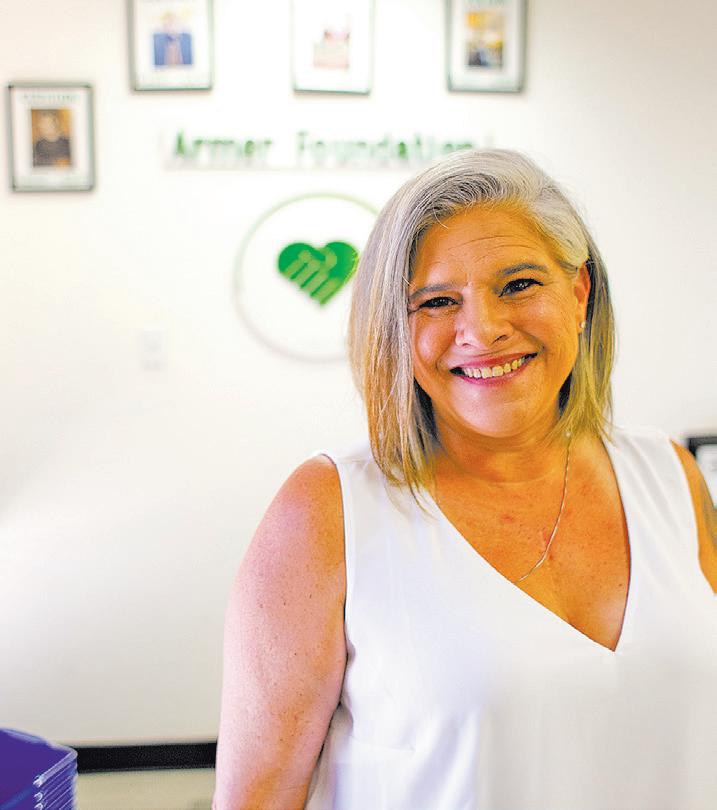
And because most of those presentations and panel discussions will be online, anyone can tune in to hear his thoughts on King – which he calls radically different than the way King, his message and activities are represented by the media and others today.
Lester shares a view of King that the late civil rights activist’s daughter, Dr. Bernice King, frequently mentions – namely that the real Dr. Martin Luther King Jr. did not advocate color blindness and demanded people see the vast
economic and cultural differences that exist in society today.
“There’s nothing in the ‘I Have a Dream’ speech that says we shouldn’t see difference,” Lester has said. “In fact, he calls difference out. He says there are some people who live in this nation who are not getting the rights that everybody else is getting. And another instance he talks about there’s a group of folks who have the opportunity and those who don’t.”
With that in mind, Lester looks at MLK weekend as “an opportunity to renew our commitment to what that dream was. But we’ve got to look at the dream as not sugar-coated.”
see LESTER page 26Ahwatukee resident and Arizona State University professor Dr. Neal Lester will be making a round of in-person and virtual appearances on panels and in other presentations surrounding Martin Luther King Day this weekend. (AFN file photo)
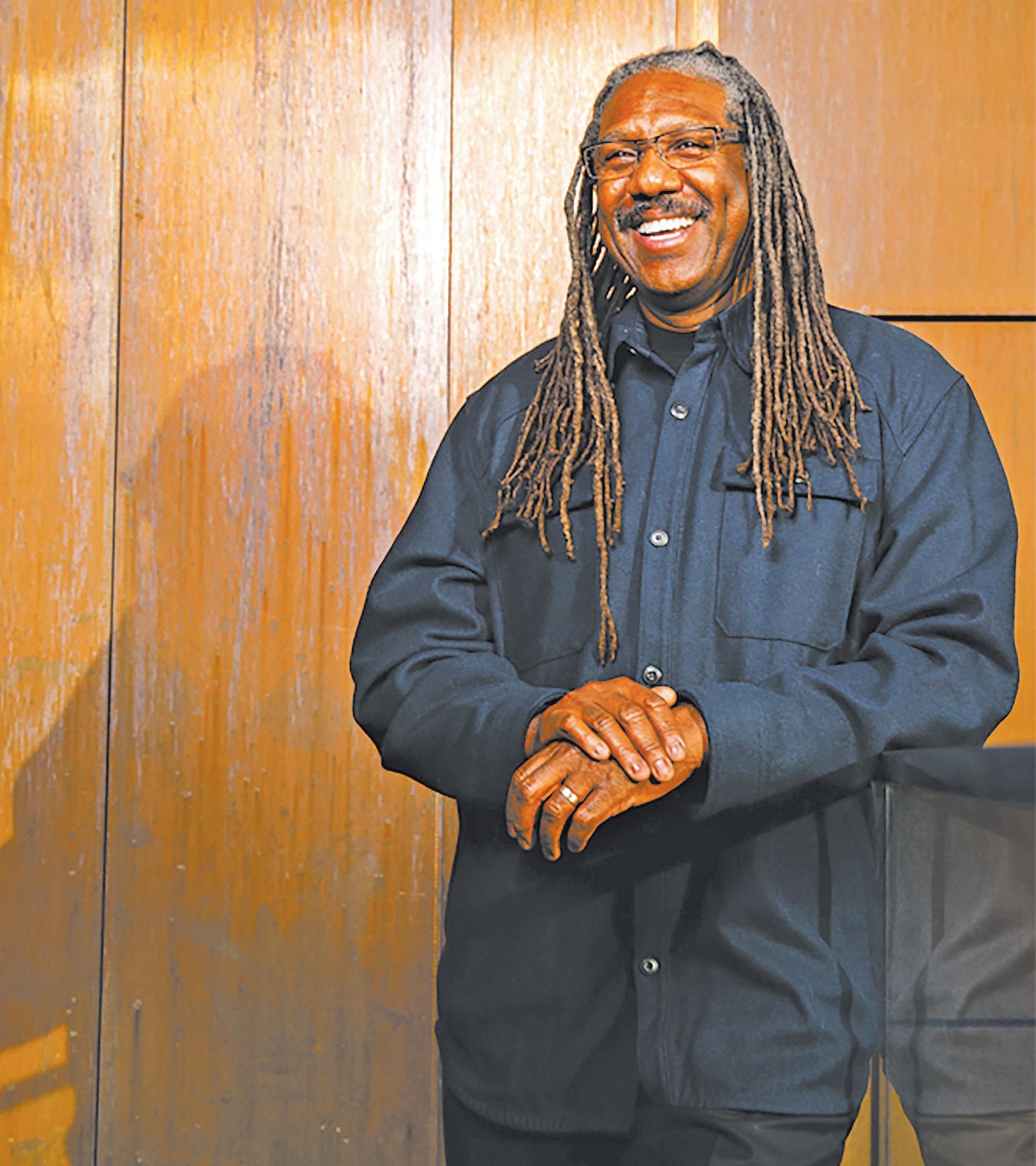
If you’re looking to help a good cause and a chance to learn some fancy footwork before Valentine’s Day, the Armer Foundation for Kids has just the event for you.
The foundation is pairing accomplished dance instructors with six local business professionals in a fundraising competition 6-11 p.m. Feb. 10 at the Fred Astaire Dance Studio, 3820 E. Ray Road, Ahwatukee. Better hurry, though, because there are only 15 VIP tickets for $50 and 60 general admission ducats for $35 available to watch a spirited competition for the Mirrorball Trophy.
The event will benefit the Armer Foundation, which has earned a regionwide reputation for helping families
with children facing catastrophic illness or medical issues.
“Our local business professionals are paired with professional dancers from Fred Astaire Dance Studios in Ahwatukee, where they have been perfecting their dance routines with a series of dance lessons to earn their way to the coveted Mirrorball Trophy,” explained foundation CEO Jennifer Armer.
Even if tickets run out, you can still help the foundation by making donations in the name of one of the amateur contestants who will be dancing with the Fred Astaire dancers.
See armerfoundation.org for the link for the event and the contestants.
Here’s a rundown on amateurs who will be trying their ..er, feet…at some dance floor wizardry.
A physical therapist and clinic director at Spooner Physical Therapy – Ahwatukee, Anthony Celio joined the practice in August 2015 and joined the Ahwatukee clinic three years later.
“By continuing his professional development and learning the most efficient and effective physical therapy interventions and skills, he uses the most recent evidence in the treatment of his patients,” Armer said, adding he has taken courses in dry needling, manual therapy certifications, as well as pain science and education. He enjoys developing specific and individualized treatment programs that will effectively treat you as a person and promote functional
Variations on that message likely will be part of Lester’s appearances this weekend and next Monday, Jan. 16.

They start tomorrow, Jan. 12, on the first day of the two-day 2023 Beloved Community Global Summit organized by The King Center, of which Bernice King is chief executive officer.

Lester will join a panel virtually at 10:30 a.m. Arizona time on tangible outcomes that can be produced at the summit, which this year has a theme titled “It Starts with Me: Cultivating a Beloved Community Mindset to Transform Unjust Systems.”
“We welcome your participation because of your commitment to creating a more just, humane, peaceful, and sustainable world,” the King Center told Lester in an email invitation.
The panel will look at “efforts to organize families, communities, professional peers, etc. around a Beloved Community Mindset and love-centered action for social change” and “sustainable individual and collective thinking necessary for transforming unjust systems.”
Lester said Bernice King is trying to achieve what his Humanity 101 class aims for.
“She says the radical part for her is to create a society where people love each other despite the fact that you are hated. …The fact that you can love them and not hate them in return is the disruption.”
“That’s why she appreciates our Humanity 101 about respect, integrity, kindness, and all those things,” he added.
The panel and other portions of the Jan. 12 summit session can be viewed online for free by registering at theking-
center.org/events.
Lester also will be interviewed by Arizona Horizons host Ted Simons for his Jan. 16 show at 5 p.m. More information is available at azpbs.org.

MLK Day will find Lester facilitating a conservation at 11 a.m. Jan. 16 at Paradise Valley Town Hall, 6401 E. Lincoln Drive, that also will be streamed for free at mlkparadisevalley.org/livestream.
Sponsored by the town and the Bahá’ís of Paradise Valley, the discussion will include a Mesa Community College faculty member and a city diversity official
discussing “The Urgency of Now.”
Lester, who received the 2019 Paradise Valley MLK Diversity Award, said that directly involves efforts to eliminate some of the crippling societal inequities that have plagued the country for centuries.

“We want to talk about specifically, what is it that we are not doing that does not speak directly to King’s notion of the urgency of now. So, we’re going to talk about what does urgency mean? How does it manifest itself? And how can you sustain urgency and for whom is this urgent? And why is it not urgent?”
Lester said, “I think there are people who are thirsting to be challenged and thirsty to learn, because research shows that the more diverse your organization is, the more we learn, the better we are.
“If we are looking the same, sounding the same, same values, then nothing challenges that, so that’s why diversity is critical to innovation and creativity –because it brings new perspectives and challenges old perspective so that we have to do something we haven’t done.”
He said Project Humanities’ annual hackathon has produced useful tools by bringing together a large group of diverse people of different ages, backgrounds and careers.
His Hacks for Humanity last fall ended with a such a diverse team creating an app that addresses caregiver burnout resulting from the emotional, physical, and financial stresses of caring for their elderly and/or disabled loved ones.


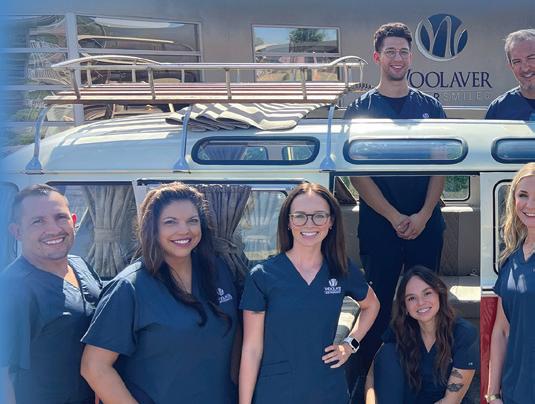
The app streamlines the process of obtaining resources and/or funding for in-family caregivers by providing users with direct access to applications and submission links.
“We bring people together from diverse backgrounds who haven’t worked together: You got an engineer working with an artist working with a musician working with a computer science person. They all have different experiences but when they put their expertise together towards some common good, look at what they can create. They couldn’t have done this with a team of artists, or a team of computer people – you bring together people who are different.”
For information on Project Humanities: https://projecthumanities.asu.edu.


Vote #57 and #58 for best computer and phone repair







movement of the entire body.
A native Louisianan, he is a sports enthusiast and enjoys spending time with family and friends and spending his days outside of the clinic doing anything outdoors.
Joe Duffy is a long-time Ahwatukee resident and a firefighter at Phoenix Station 22. As the owner of the Handy Fireman Woodwork, the Navy veteran and father of four is well known in the community for his original art and functional pieces made of wood.
He also calls himself “a perfectionist, a comedian, and a competitor” and when he is not working 56 hours on the job for Phoenix Fire, he is in his garageworkshop or with his family. In 2019, he founded The Woodwork, LLC as a platform to showcase and sell quality handmade heirlooms. “Sometimes in today’s modern world, we can forget the beauty in the natural, beautiful, and handmade,” he said.
“I never stopped learning how to
Ahwatukee Foothills Friends and Neighbors is kicking off 2023 with a brunch 11 a.m.-1 p.m. Jan. 23 at Biscuits Restaurant.
A presentation titled “In Case of Emergency” will be made by guest speaker Derrick Johnson, retired Phoenix Fire Department paramedic.
Contact affanwomensgroup@gmail.com for more details and to register. The cost is $20 and a prepaid reservation must be received by Jan. 14.
The group is a local women’s club serving Ahwatukee since 2001 that offers women of all ages activities such as dining, card playing, games, gardening, books and day trips.
More information: affanwomensgroup.org/public
LD12 Democrats & Donuts, an event that occurs every third Wednesday of the month at Denny’s, 7400 W. Chandler Blvd., Chandler, this month features Democratic National Committee member Mark Robert Gordon.
He will give an inside perspective on the election just past and the outlook for 2024.
Although the official time of the meeting is 8-9 a.m., the group asks visitors to arrive earlier to get their breakfast order in before the meeting starts. The hosts will be there by 7:30 a.m. Information: Julia
build and create. I am a student of the craft and a perfectionist,” he said. “I now get the opportunity to show my sons the importance of hard work and the invaluable life lessons of attention to detail, patience, problem-solving, and creating change, all while having fun.”
A retired small business owner from Colorado, Sarah Kennedy was executive director of a multi-national student exchange organization called Hands Across the Border, and then became the director of the Arizona Sexual Assault Coalition.
An outdoors enthusiast, she started line dancing in 2021 through the City of Chandler Parks and Recreation Department.
“Even though I was a novice, the women and men in the line dance community welcomed me with open arms, and I have since made many friends, and have become acquainted with fascinating line dance people from all over the world. My hero line dance teacher is Donna Chapman, who is the wife of my competitor, Rick Chapman. I have ZERO experience with partner dancing.”
Richard (Rick) Chapman has worked for Kroger (Fry’s) for 30 years in the meat department, where he has been known to often sing. “Whether a barbershop quartet or some barroom karaoke, you can always find him singing or humming along to a song,” Armer says of the Colorado native.
“For many years, he enjoyed a side business as a DJ for weddings or karaoke parties. He was very active in the Montrose Magic Circle Community Theatre group and mainly did the musicals.”
A commercial account manager for ECD Systems, a security integration company, Shanna Williams is a native Arizonan who with her husband has raised seven children.
“She has a heart for service and is an active member of the Women’s Auxiliary at the Phoenix Zoo and also volunteers as often as she can at her kids’ schools, Armer said, adding she is an avid outdoorswoman.
“When approached to battle it out for the coveted mirror ball in the Armer
The Kiwanis Club of Ahwatukee has announced a full roster of speakers for its weekly breakfasts at 7 a.m. Thursdays at Biscuits Restaurant in the Safeway Plaza on the southwest corner of Elliot Road and 48th Street.
Speakers include: Jan. 19, Paul Maryniak, executive editor of the Ahwatukee Foothills News; Jan 26, a speaker from Helping Hearts; Feb. 9, Jeff Parent, Ahwatukee Little League; Feb. 6, Kevin Robinson, Phoenix City Council candidate; March 9, Mary Adams, of Mountain View Lutheran Church; and March 16, Juan Te Dailey, of D Squared Homes for the Homeless.
In 1970, only farms west of I-10 south of Phoenix when California developer Randall Presley bought a few thousand acres and began Ahwatukee with a golf course and a senior activities center. Homes were sold in senior, adults-only and family areas.
That center, now called the Ahwatukee Recreation Center, will host Ahwatukee historian and author Marty Gibson and several characters involved in those early days at 2 p.m. Jan. 21 at the center, 5001 E. Cheyenne Drive. Gibson has authored two books on Ahwatukee history.
In a panel discussion, Gibson and guests will reminisce about those days, including the construction of the “House of the Future” on Equestrian Trail that drew busloads of tourists from the airport who conveniently were driven slowly through the model homes on Mesquitewood Trail so that the they might be enticed to buy in the new development.
The public is invited to the free presentation, which is part of the ARC’s celebration of its 50th anniversary.
History sessions will also be held in February and March to highlight the pioneer residents and merchants in Ahwatukee. All sessions will be free.
Ironwood Library, 4333 E. Chandler Blvd., Ahwatukee, presents a variety of programs for children, teens and adults. Unless otherwise noted, free tickets are required and available 30 minutes before programs’ start times at the library’s information desk.
For more information: phoenixpubliclibrary.org.
Babies ages birth to 23 months, accompanied by a favorite adult, will enjoy songs, rhymes, books, and interactive fun Tuesdays, 10:30-11:10 a.m. Space is limited to 12 families.
Toddlers ages 24-36 months, accompanied by a favorite adult, will enjoy songs, rhymes, books, and
Foundation’s Dancing with the Stars event,” Armer said, “The Armer Foundation has done so much for families near and dear to Shanna and it is a privilege to help raise money to continue impacting these deserving families in big ways.”
Owner and president of Phoenix Business RadioX, Karen Nowicki describes herself as “a results-driven professional with over 35 years in corporate, small business, and educational environments.”
Her studio and company “help solopreneurs, professional organizations, and brands build community around the people who matter the most to them” and her specialties include training and development, assessment strategies, talent management, project management, strategic planning, operations management, communication specialist, facilitative leadership, marketing, public relations, B2B podcasting, and “conscious capitalism.”
Information: fredastaire.com/ahwatukee.
interactive fun Thursdays, 10:30-11:10 a.m. Space is limited to 12 families.
Young readers & listeners can sign up for reading time with a registered therapy dog/handler team. Read with Elsa 4-5 p.m. every Tuesday.
Children ages 6-12 can explore hands-on creative ways to design, experiment, and invent Saturdays 2-3 p.m., in this Science, Technology, Engineering, Art and Math (STEAM) program. Space is limited to 10 families. No tickets are required.
Teens: Envision 2023
Teens are invited 4-5 p.m. Jan. 24 to make vision boards – a collage of images or objects that represent their goals – to motivate them all year long. They can bring photos or objects to but it’s not required. All supplies will be provided. No tickets required.
Ironwood is looking for teens ages 12-17 who would like to help organize programs, create displays, and improve the library experience for all library users.
Participation offers an opportunity for those wanting experience in a work environment for school, scholarship, or job applications. Online volunteer applications are available at volunteer.phoenix.gov. Under “Browse by Interest” choose “Library,”
in the “Keyword” box type “Ironwood,” and complete the appropriate application.
A volunteer coordinator will notify applicants when the first meeting will take place.



This inclusive community-based book club is designed for people ages 12+ with intellectual and developmental disabilities who have a desire to make friends, explore their community, and read (regardless of current reading ability). This weekly gathering is free and occurs 3:30-4:30 p.m. every Wednesday.
Registration is required and available in the library or online in the Calendar section of the library’s website.
Adult readers 18 and over can meet up with fellow adventuresome bibliophiles to share their thoughts about each month’s selection the 5-5:45 p.m. the first Wednesday of each month.
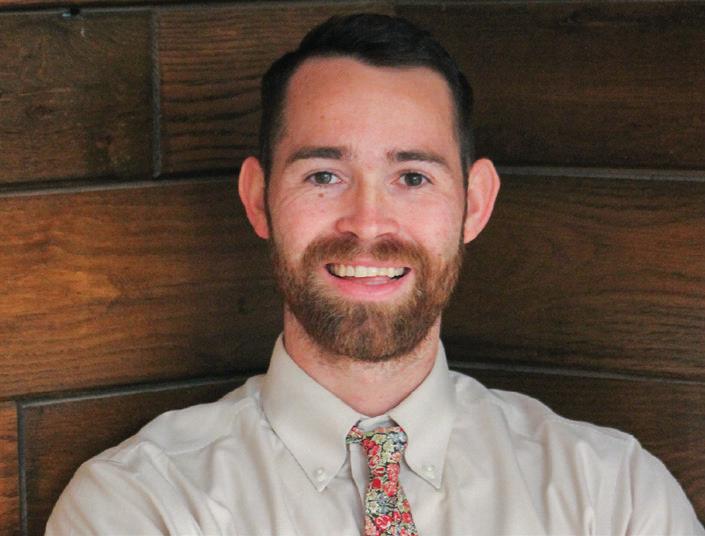

The book Feb. 1 is “A Woman of No Importance” by Sonia Purnell.



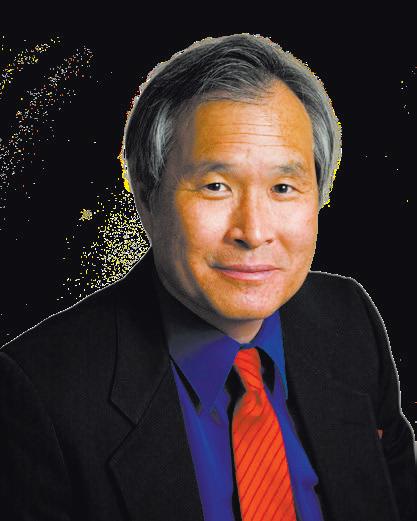


www.ahwatukee.com

Achic, modern new wellness studio launched in Ahwatukee Foothills in December dedicated to helping people stay healthy and fit by helping them stretch.
Stretch Authority, on East Ray Road near South 48th Street by Goodwill, has a team of “stretch experts” that give clients a deeper stretch than they can get doing it on their own. These are one-on-one sessions – not classes – lasting 25 minutes.
Co-founder and co-owner Dean Lucente, who’s lived in Ahwatukee since 1994, created the company with an old friend, Stephen Russo of Boston, who told him about the stretching industry and benefits of assisted stretching.
“I had always been into fitness and wellness my whole life,” Lucente said. “I played youth sports. I noticed as I start-
ed aging that I wasn’t able to do as many things as I mentally wanted to do.”
“When you look at somebody like the athletes that are out there today that are older, it’s because they’re flexible, pliable,” he added. “It’s not because they’re bulky and strong and can lift a lot of weight. It’s because they’re agile and have a good stretching routine.”
Even for the average person like weekend golfers, casual tennis players or regular walkers, however, stretching is important.
“People are finding out more and more
see STRETCH page 31
Stretch expert Courtnee Diemer of Chandler helps client Orfe Kelly of Ahwatukee with a shoulder stretch at the new Stretch Authority in Ahwatukee as co-founder and co-owner Dean Lucente looks on.
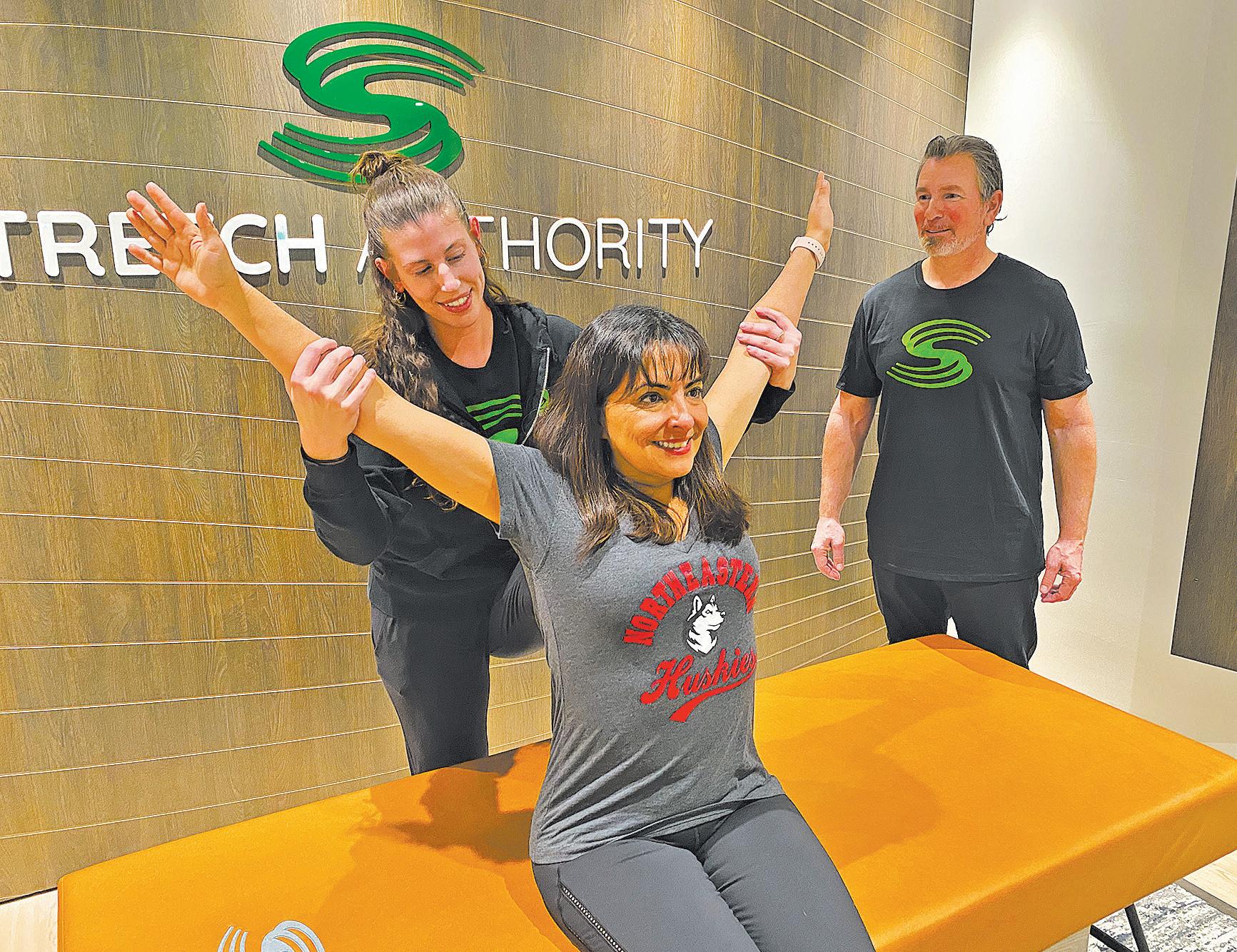 (Geri Koeppel/AFN Contributor)
(Geri Koeppel/AFN Contributor)
After a year in which the Valley saw the nation’s highest inflation rate for metro areas, experts say consumers can expect inflation to ease in 2023 – but warn that it’s not going away entirely.
The consumer price index for PhoenixMesa-Scottsdale in October, the most recent month for which data is available from the Bureau of Labor Statistics, was 12.1% higher than it was in October 2021. The next-highest metro areas were Atlanta, which posted a 10.7% increase for the year, followed by Tampa-St. Petersburg at 10.5% and Miami at 10.1%.
Price increases were up across the board, with higher prices for fuel, food, clothing and more. In Arizona, the biggest increases came in the price of gas, which was up 41% from October 2021 to
October 2022 – although that recently reversed course – but experts say the biggest driver of the inflation index was the cost of housing.
Mark Stapp, a professor at Arizona State University’s W.P. Carey School of Business, said shelter accounts for onethird of the consumer price index, which is why Arizona is facing such high inflation rates.
“The index is a composite. One of the larger elements of that composite is related to shelter,” said Stapp, who is also the director of the Center for Real Estate Theory and Practice at the Carey School. “It can make up 30-40%, so a significant part of the estimate of what inflation is in Arizona is that shelter component.”
George Hammond, the director of the Economic and Business Research Center at the University of Arizona’s Eller College of Management, agreed that shelter has driven inflation in the Phoenix area.
“The major reason why Phoenix’s inflation rate is running so much faster than the national average, is what’s going on in the housing market,” Hammond said. “Housing is by far the biggest single category in the price index, so it has a huge influence on what happens.”
There are several reasons for the rise, they both say. The steady increase in the number of people moving to Arizona jumped with COVID-19, creating more demand for what was already a short supply of housing for renters and homeowners. It created what Hammond described as a “recipe for really rapidly rising house prices and rents.”
“The shelter component has been very difficult to come back down because of the amount of growth that we’ve had here and the lack of supply in ownership and rental housing,” Stapp said.
While housing has been the biggest part of Valley inflation, gas prices may
have had the biggest emotional punch. A gallon of gas cost as much $5.39 a gallon in June, according to AAA. Prices started falling after the summer peak and were at $3.36 a gallon last week, almost 19 cents lower per gallon than it cost a year ago. But the spikes still had an impact.
Dennis Hoffman, an economics professor at the Carey School, said transportation costs play a large role in inflation for a sprawling area like Phoenix.
“We’re quite a commuter region,” said Hoffman, who is also director of the L. William Seidman Research Institute at the Carey School. “A lot of people commute, so they pay the costs of used cars, and cars of course need gasoline.”
Hoffman said Arizonans typically pay more for gas because there are no refineries in the state, relying instead on Cali-
the benefits of stretching and what it’s doing and how it’s helping peoples’ bodies and their minds,” Lucente said. “It has a lot of mental and physical benefits.”
There’s no shortage of literature on all the good that stretching can do, from the physical—helping with pain, being more flexible, delaying the effects of aging, getting better sleep—to mental, such as improving mood and focus and relieving stress.
But why pay someone for help with stretching?
“It definitely helps you get deeper into the stretch,” said Blake Ingleston, a Stretch Authority employee who also does athletic and fitness training elsewhere.

Lucente noted that the stretch experts “can get you into positions you can’t get in yourself.”
The main issue customers come in for are their hips, he said, followed by shoulders and back. Those areas are often difficult to fully stretch without extra assistance.
Getting stretched regularly by a professional also helps people get into the habit of stretching daily outside of the studio as well.
“Most people, they don’t ever stretch, whether that’s before or after any type of competition or any type of workout,” Ingleston said. “It’s beneficial for helping the body, helping recovery.”
It’s also important to stretch to counteract repetitive positions or motion.
“We contract into positions we’re in— on a computer, on a phone, if you’re a chef and are standing all the time,” Lucente said.


Assisted stretching helps push around the synovial fluid, which cushions and lubricates the joints.
Stretch Authority has a series of 30-second videos on YouTube to help anyone get better flexibility, and Lucente urges the public as well as customers to access them.

“We really want to be a resource for people,” he said.
Client Orfe Kelly of Ahwatukee said she started going weekly to Stretch Authority because “I’m fit, but because I spend a lot of time at my desk, I needed something to stretch my back, my arms. This has been a game changer…. I do pickleball, and I feel it enhances movement.”
Not to mention, Kelly added, “You leave feeling really good. It almost realigns your posture.”

She also commented that she likes the ease and convenience of the booking system, which allows customers to book their own appointments online or via an app.
Stretch Authority hours are 8 a.m. to 6 p.m. Monday through Saturday.
Prices vary based on the package, but the introductory offer ranges from $37 for each of 12 sessions bought in a pack to $40 for a single session. A membership can be as low as $26 a session.

A complimentary session can be booked using the code AFN2023, but it expires on Jan. 31 and must be booked online or on the app.
Also, customers can get reimbursed from their flexible or health spending accounts if their health provider prescribes stretching.

Lucente is no stranger to the business world.





He came to Arizona from Boston to attend Arizona State University and never left, and started the human resources solutions company AmCheck in Ahwatukee in 1996. It grew nationally through franchising, and he sold it in 2018.
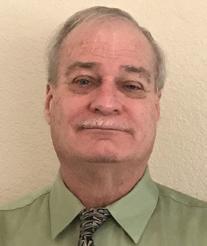
After being “semi-retired” for a while, Lucente spent two years building Stretch Authority as a “passion project,” he said.
He wanted to develop a business so employees and customers could have fun and it would benefit the community,
where he and his wife, Marta, have lived for more than two decades and have raised two teenage daughters, Noel and Gianna.
Lucente and a team of contractors developed the proprietary user-friendly technology to make it easy for customers to schedule.

He hired leaders in the industry to develop an employee training program, which is augmented by a stretching certification from the National Association of Sports Medicine.
While the Ahwatukee studio is the flagship location, franchises are in the works.
Though Stretch Authority has clients of all ages, the majority so far are over 40, Lucente said.




“If we can take someone who’s aging, maybe slowing down, and make them feel more spry and agile, man, we’re doing our job,” he said. “That’s what it’s all about.”
What: Stretch Authority, a studio offering one-on-one professionally assisted stretching

Where: 4940 E. Ray Road, Suite 40, Ahwatukee.
Hours: 8 a.m.-6 p.m. Mon.-Sat. Contact: 800-925-7750; stretchauthority.com

fornia and Texas for its gas. Arizona was hit hard when some California refineries shut down in September.
Another increase that hit home for consumers was the price of food, which was up by 12.6% over the year, led by a 16.4% increase in dairy products, according to the BLS.
Beth Fiorenza, the executive director at Nourish Phoenix, said that has caused the number of people seeking help from her pantry to roughly double in the last three to four months over normal levels.

“If people were already living paycheck to paycheck, and then inflation and higher expenses hit, now they’re really struggling to get by every month,” Fiorenza said.
The latest surge in inflation capped three years of steady increases, according

to the BLS. It said inflation in Phoenix rose by 0.7% from October 2019 to October 2020 and then rose 7.1% from 2020 to 2021 before spiking over the past year. But the economists believe that things may be turning around and that the high prices will slowly decrease over the next couple of months. Stapp noted that gas prices have already fallen and he expects the same should happen with housing.
Hammond agreed that housing prices should start to fall in the new year, and he thinks Arizona will likely follow the rest of the U.S. economy, which has been generally cooling in recent months.

Hoffman was more confident, saying he thinks the worst is in the past and that the economy will soon start to stabilize.
“I think we’re going to see inflation rates come down over the next year pretty dramatically,” he said.





This letter is in response to the letter that appeared in the Dec. 28h edition of AFN regarding, using a quote from Casablanca, the “usual suspects” (Club West Conservancy, The Edge, etc.). In that letter, there were several inaccuracies and, in my opinion, misguided opinions. Specifically:
1. First, from what I read in the AFN, court rulings are not going against the CWC. In fact, the court just ruled that CWC does have standing to pursue their lawsuit against The Edge.
2.It was stated that “many of the owners on the golf course … do not endorse your (CWC’s) continued actions”. I know of no formal survey that has been taken recently regarding CWC’s actions, as neither myself nor my golf course
bordering neighbors have received any type of survey or inquiry on this subject.
3.The letter states that “The Edge was and is willing to work with us.” I beg to disagree.
When the EDGE initially introduced their ill-fated housing plan with Taylor Morrison, this community was not consulted beforehand. Its plan was rammed down the throats of this community at an HOA meeting where only the Board members were given a headsup and, in my opinion, had tacitly approved. (And that’s why those existing board members who ran for re-election were summarily defeated.)
As a result of the tremendous negative reaction from the community, TM withdrew from the project, as now Shea has done as well.
In fact, The Edge has not held, or even
proposed to hold, a community meeting to discuss the future of the property since its original plan was withdrawn. So how it The Edge “willing to work with” the community?
And if The Edge has and continues to work positively with this community, why are they suing Mr. and Mrs. Tyler? Sounds vindictive to me.
4. The letter also implies that at least some of the property would be a golf course in the future. As The Edge has not published a revised plan to date, it cannot be known if this is a true statement – unless, of course, the author has some information that the rest of us do not have.
If The Edge does have a revised plan, they should publish it; nothing is preventing The Edge from doing so.
5. The underlying thesis in last week’s

Share Your Thoughts: Send your letters on local issues to: pmaryniak@timespublications.com

letter is misguided in that the author’s premise is that majority can overrule and abrogate the rights of the minority, in this case, the owners who border the golf course. Such a theory goes against our legal system.
Finally, the letter concludes by stating that “we could have had a beautiful community with golf by now.” What was not included was “as long as you don’t have any housing directly in back of you.”
Therefore, although I am not a member of CWC, I support their actions to enforce the promises made to golf course bordering homeowners, including subsequent purchasers, as well as to save this community from increased noise, pollution, traffic, and general over-development.
- Thomas Bell 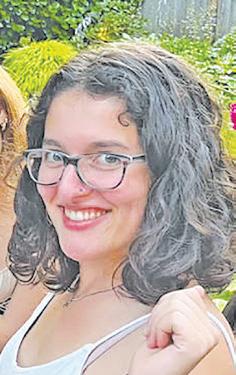
hen talking about what Dr. Martin Luther King, Jr. identifies as “the urgency of now,” it can be difficult for some to not slide into a narrative of catastrophizing. Deal or no deal, total collapse of society or why some people keep insisting on rocking the boat. The 21st century has been off to a rough start with the increase in global
temperatures and fluctuations in weather patterns, the creeping influence of extremism, and the persistence of institutional racism.
WBeing overwhelmed with the range of issues can make me want to take a couple of Ibuprofen and hide under a blanket for a few hours. Hiding under a blanket can seem the best course of action for not increasing my carbon footprint or unknowingly committing a microaggression against a minoritized
BY WILLIAM MARGULIS AFN Guest Writer
Today, we live in the wake of one of the largest social movements in U.S. history being largely unsuccessful in creating institutional change. We live approaching a climate catastrophe that has already decimated entire nations and threatens to expand exponentially. We live in “the richest country in the world,” where over 60% of working peo -
ple live paycheck to paycheck, including half of those earning six figures.
For those who know Martin Luther King Jr. as the MLK depicted in the American zeitgeist, a nonviolent activist that championed racial equality, celebrating MLK day may bring mixed emotions given the litany of issues in our world that interconnect with and go beyond race.
Thankfully, this MLK never existed.
MLK consistently advocated for social,
group, but if I remain under that blanket, what am I contributing to my community, and what privileges am I taking advantage of?

Inaction affirms and perpetuates oppressive systems that deny another’s humanity. Yes, there are problems in the world today. It would be a discredit to the activists who have come before us to write off the fight for equity as impossible and failing to recognize that the systematic patterns of oppression in the USA trace back to white supremacy.
Dr. King spoke candidly of two Americas – one “overflowing with the miracle of prosperity and the honey of opportunity” and the other where “people are poor by the millions… perishing on a lonely island of poverty, in the midst of a vast ocean of material prosperity” (King 1967).
Typically, those who are not socially and economically privileged white people, i.e. people who are devalued through white supremacy, are shunted off to the “Other” America. Prolonged exposure to the other America can transform “the buoyancy of hope into the fatigue of despair” (King 1967), which swamped plenty of people in early 2020 as they experienced economic hurt and witnessed the murder of George Floyd. Issues of systemic racism manifest in police brutality, microaggressions, de facto segregation, and a lack of diversity in STEM fields, to name a very few.
Yet, none of this is new, and methods of resistance and guidance can be found in our past. Dr. King called for a universal income in 1967 and was warning that for every two steps of progress America makes for racial equality, she takes another step back.
After people protested against the murder of Black Americans and police brutality, the anti-critical race theory (CRT) rhetoric was born, claiming that schools were trying to indoctrinate children into anti-white ideology via Maoist struggle sessions. These were and are untrue claims, but plenty of states have now passed legislation affirming this falsehood and even creating penalties for educators and school districts all over this country.
African American philosopher and activist W.E.B. Du Bois commented that his college education did not alter how
he was treated by people because of his race, having to ride in a segregated train car in the Jim Crow South.
Unfortunately, we are separated from this wisdom by a generational gap, distancing ourselves from members in our communities who have experienced the same hurt. Audre Lorde points out that the generation gap is a tool of oppression, resulting in “historical amnesia” (Lorde 1980).
Having these historical blinders on keeps us from seeing that time is neutral. This is a key point in Dr. King’s “The Other America” speech. Inaction in the present does not promise racial equity tomorrow. Such a thought process is just playing by a set of rules that oppressive institutions have set, which is what W.E. B. Du Bois concluded in 1903.
There is an urgency to act now, just as there was an urgency to act seventy years ago. Rewriting history to soften the tone of Dr. King is a power-grabbing move.
That MLK Day is a federal holiday for most workers does not mean that we should stop scrutinizing the powerwielding institutions that demonized Dr. King and violated his right to privacy during his life, cracking open a cold one to celebrate the fictitious idea that America is in a post-racial society.
Nor should we let him be remembered through the same institutions he was trying to dismantle and redesign. Dr. King was the person who had a dream and believed in nonviolence, but he was also the same person who recognized that “a riot is the language of the unheard” (King 1967).
MLK Day is often seen as a day of service, to engage in a meaningful way with the people and communities around us in efforts to reach through some of the racial, social, and economical dividers in our society and to forge community. Don’t just see the Other America and feel helpless. Do something to bring those two Americas closer together.
Compassion and activism isn’t a oneand-done sort of activity; it is continual work and a way of life.





Emmeline Wuest is an ASU junior majoring in both English with a concentration in creative writing and anthropology, hoping to be an English professor and a writer but also interested in nonprofit work.
economic, and political ideas relevant to contemporary struggles. His opinions on these issues were often what we call “radical.” A few examples:
“I am much more socialistic in my economic theory than capitalistic… Today capitalism has outlived its usefulness.” –Letter to Coretta Scott (1952).
“The evils of capitalism are as real as the evils of militarism and evils of racism.” – Speech to the SCLC Board (1967).
“The solution to poverty is to abolish it directly by a now widely discussed matter: the guaranteed income… The time has come for us to civilize ourselves by the total, direct and immediate abolition of poverty.” – Where do We Go from Here? (1967).

He also understood how issues considered separate from economics and antiBlack racism were connected. He told Cesar Chavez that he saw their struggles as one, and said the same to Vietnam War protestors. His intersectional social analysis was fueled by a vision of the world as intertwined itself.
“We are all caught in an inescapable network of mutuality tied into a single garment of destiny. Whatever affects one directly affects all indirectly.” – Speech at Ebenezer Baptist Church (1967).

It is a disgraceful reality that this MLK has been exiled from the popular narrative. Regardless, he is now as he was then: prescient and radical.
Then there is the issue of MLK’s nonviolence. Popular video of MLK’s marches presented without the proper context communicates a disturbing idea: social change happens when the oppressed take violence without resistance. Once again, this discouraging idea is disconnected with reality.
MLK’s use of nonviolence was deliberate. He made sure that the brutality levied against his protests was always presented to an audience and he used the collective sympathy of that audience to facilitate change. Arguing for nonviolence as a blanket response to systemic violence in the name of MLK only serves to pacify those who want to resist.
The blacklisting of MLK’s radical politics shows that we must complicate ourselves despite every force that tells us to simplify in fear that we will break from the status quo. The way MLK strategized resistance instructs us to aim our frustration and anger deliberately. We must use these tools to rise above apoliticism and inaction.
We should have done this yesterday, and we are surely telling ourselves that we will do it tomorrow. These thoughts are both inadequate. Yesterday is gone, and tomorrow is but an idea.

Our urgency must be today. Today is MLK day, so today we act.
William Margulis is a senior at ASU studying psychology and hoping to become a therapist.
















Check us out and like the Ahwatukee Foothills News on Facebook
Joseph Lindsey knew coming to Mountain Pointe would provide him an opportunity to learn and play at a high level one day.
Little did he know that day would come in his first high school basketball season as a freshman.
Lindsey still recalls the conversation he had with Mountain Pointe coach Kaimarr Price during the off-season. Price told him he would have a bigger role than expected on the team. While he admits he had butterflies at first, it’s what he wanted.
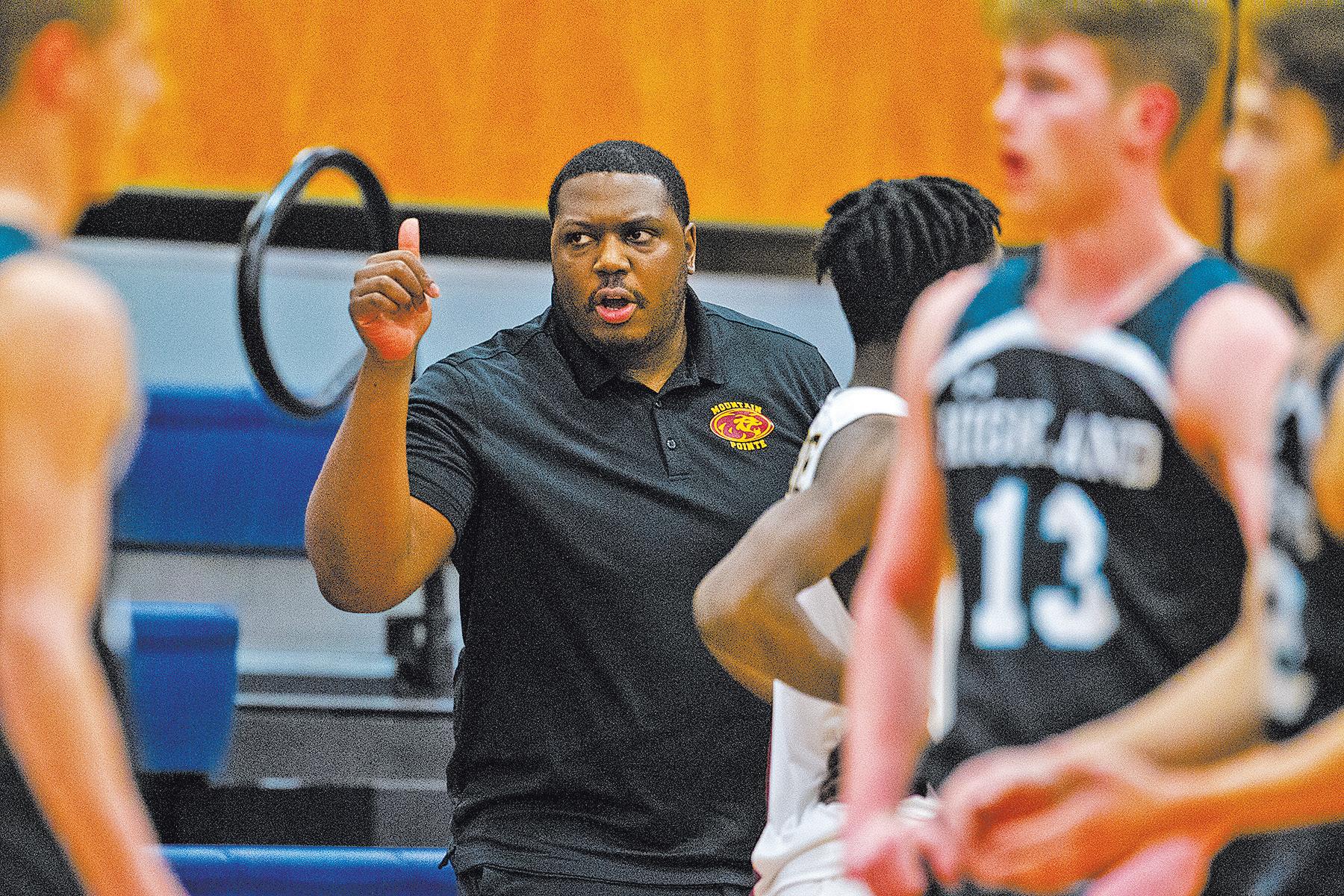
A chance to prove himself.
“I had to work for my spot, work hard to get it,” Lindsey said. “I’ve really had to step up as a point guard and leader. But it feels good, I like (the pressure).”
It took time for Lindsey to adjust to the speed of basketball at the high school level, let alone while playing varsity for a program that has high expectations year in and year out and runs an offense that likes to get out and run the floor.

He struggled. He was constantly reminded in practice both by himself, teammates and coaches that this was no longer junior high basketball.
He had to find a way to learn on the fly if he wanted a shot at playing this season.
“It’s been pretty hard,” Lindsey said. “I have to get used to the high school speed. It’s way faster, way quicker. At first, (practice) was a little hard. But I’m starting to keep up with everything.”
He took advantage of reps he got in summer, sitting behind Mark Brown and learning from other key players like Tru Washington, Ayden and Jayven Price and Amous Price. Brown played his position, point guard, and entered the program like he did — as a freshman eager to learn.
Brown went on to become a starter for the Pride early on in his career but
made the decision this summer to transfer to a prep school to finish high school.
he wanted.
“He was ready for it,” Price said, recalling the conversation he had with Lindsey this summer. “Coming from eighth grade is difficult, especially stepping straight into varsity at a program that is used to playing at a high level and a standard of point guards that have come before you.
“But for him to step right in, I think he has definitely handled it well.”
Lindsey continued to learn under the Price boys. Ayden and Jayven, the two senior leaders, took him under their wings to show him the ropes. Amous, who played a pivotal role last season as a freshman, explained how to adjust to the speed of the game.
Lindsey felt at home right away with the Pride, he just knew it was time for him to have the confidence in himself that they had in him to lead the team.
Game by game that confidence has grown. The game has slowed considerably, and Lindsey is finding himself leading the Pride at point guard.
It’s a position that has seen stars come and go in the program in recent years. From Brown to Jason Kimbrough to Khalid Price, all three were natural scorers that could hit big shots when they were needed.
Lindsey, however, is more of a facilitator this early in his career. He looks to find teammates for open shots rather than create his own. But Price knows his ability to shoot is there — he hit a buzzer beater from 3/4 of the court in the McClintock Holiday Shootout. Price also believes he has the tangibles to be the best player on the court at all times.
“Truthfully, the raw talent as a point guard – not a scorer, just overall point guard – he is the best we’ve had as a freshman,” Price said. “He has court vision and the ability to make every pass and willingness to make every pass. Putting it in his hands and letting him go
just makes everybody get faster.





“He gives us that energy and his ball movement makes everybody go harder.”
Heading into Saturday’s matchup at Tucson, Mountain Pointe sits at 8-5 on the year. All losses have come to teams that have potential to make deep runs in the new Open Division for basketball.
The Pride placed fourth overall at the McClintock Holiday Shootout behind undefeated Basha, two-loss Highland
and three-loss Desert Mountain. Even with moving down a conference from 6A to 5A, the goal hasn’t changed for Mountain Pointe.


The Pride want to play for an Open Division title. That’s the new standard. And they’ll rely on Lindsey to help get them there.

“I’m going to keep it going,” Lindsey said. “I’m going to work hard, keep the momentum going for my team and go even harder the next game.
“I just have to make (teammates) proud of what I’m doing.”







Chandler filmmaker Mitesh Patel says there has been a noticeable change when he attends film festivals around the world.
“When I go to see some, like AFM American film market, or any other like Berlin, or Cannes, whenever I go somewhere for my movie work, I meet with people and they talk about the festival,” said Patel, who is president and the director of the Chandler International Film Festival. “And what’s surprising to me is they all know, mostly I would say they know about the Chandler Film Festival.”
Patel said he and his team once had to work hard to get the word out about the annual festival. Now, they don’t. The seventh annual Chandler Inter-
national Film Festival is scheduled for Jan. 21-29 at the LOOK Dine-In Cinema in downtown. Patel is extending it to
nine days this year so they don’t have as many matinee showings. Films will start at 6 p.m. most days, with some

matinees on the weekends.
“You know a lot of people work, so it’s kind of a struggle, but it was good for the people who are coming from out of town so they can just stay for an entire weekend,” Patel said.
He said he wanted more Chandler residents to be able to attend, and that was the reason for pushing back start times and extending the festival.

Patel said the number of films will be the same, about 125 or so. He said they had more than 500 submitted to be considered. That’s still down considerably from pre-pandemic when they would get about 1,000.
“I think the pandemic is still going on,” Patel said about the lower number of submissions. He added that they no longer advertise and push hard to get


Acelebrated Los Angeles magician will be appearing Jan. 28 at the Ahwatukee Recreation Center and his appearance is something of an anomaly for the 55-and-over homeowners association.
The show will entertain kids as well as adults.
“This is a pretty big deal for ARC since they seldom have artists doing more than one show, and they have only had magic on a few occasions,” resident Ed Doney said of the ARC Entertainers Club.
“Most people don’t think of a 55-and-over housing development as being very kid friendly,” Doney said. “ARC has special hours for kids in their swimming pool, but it doesn’t offer much else that would interest kids.
“The Entertainers Club at ARC wanted to come up with something that adults would enjoy, but that they could also take their kids and grandkids to. That, they thought, would take a bit of magic. They scoured available performers all around and found a young magician who knows all the right tricks.”
Hernandez bills himself as a “corporate magician,” meaning he often targets company gatherings for special appearances with “strolling magic, parlour shows, big illusion shows, and escapes almost anywhere,” he says on his website.

He has performed a two-hour illusion show weekly for 10 years at the Welk Resort Theatre in Escondido, California; performed the last four years or the Marriott Corp.; has frequently sold out the Pearson Park Ampitheatre in Anaheim, California; and has won plaudits from a
variety of comedy associations.
Hernandez is bringing his family-friendly show to the ARC, 5001 E. Cheyenne Drive, at 2 p.m. and 7 p.m. Jan. 28. Tickets are $20 for adults and $15 for children 5-17 and are available on purplepass.com/ ARC, and in the ARC lobby 9-11 a.m. Monday through Saturday.
“When the ARC Entertainers scouts saw his performance, they loved it and booked him as soon as they could,” Doney said. “His shows receive outstanding reviews. According to Trip Advisor, ‘You will laugh, you will cry, you will be amazed.’ Another reviewer there
Samantha DelBrocco was on vacation in Nashville a few years ago when she witnessed an attraction that she found appealing.
She joined her friends on an opentop wagon trailered to a tractor towing the wagon around downtown Nashville as DelBrocco and her crew sipped on sparkly champagne while dancing to music provided by a live DJ.
The concept marinated with her until last August, when she realized her dream of creating an attraction for people to sip as they cruise the streets of Scottsdale.
DelBrocco planned to purchase a 40foot school bus that could accommodate up to 20 people and she dubbed it the “Champagne Train,” renovating it with chic interiors and a bar.

“First I had to decide what type of bus we were going to use,” DelBrocco recalls. “I knew I wanted it to be pretty big because I wanted it to feel like a lounge like a bar on wheels as opposed to a party bus.”
Because of that, she knew she needed to find a large bus.
“I knew it had to be big and I knew it had to be tall so that people could walk into it,” DelBrocco said.

After a month of scouring the Valley for a bus, DelBrocco found one at a school bus lot in Phoenix.
Her next challenge was gutting the
from page 40
said, ‘It’s a magical night of interaction, illusions and fun for the whole family.’


As a bonus to aspiring magicians, Hernandez will have some tricks available for purchase after the show and, time permitting, he will give some tips on executing them.

Hernandez was raised by his grandparents in a small town in Santa Barbara County, California. When he was 12, he saw David Copperfield on television and was bitten by the magic bug. He began doing tricks for his schoolmates and performing whenever he got the chance.
vehicle and converting it into a rolling destination.
“I found a remodeling company that does bars and then they just so happened to be able to do the entire thing,” said DelBrocco. “They put in vinyl flooring, shiplap, lighting, speakers and even built the bar, which, all told, took about three months.”


With the keys to the bus back in her hands just in time for the Holidays, DelBrocco soft-launched the Champagne Train by hiring two CDL-certified drivers, who are also school bus drivers with over 15 years of experience, to moonlight for her and bus patrons around a special holiday route where guests would be routed to some of the
His grandparents fueled his interest when they located a retired magician who became Anthony’s magic teacher. That teacher was Ralph Adams, who had been a world-famous performer that brought magic to television in the 1950’s, and in the 1960s appeared on Hollywood Palace and The Mike Douglas Show.
After high school, Anthony moved to Riverside, California, to care for his mother and found a job at a local amusement park. As a bonus, the park had a stage where he had the opportunity to practice his magic and develop his skills. He developed those magic skills and still returns to the park to put on shows on featured weekends.
brightest lit homes around the city.
She also found a loophole to get alcohol onto the bus by ensuring that guests bring their own alcohol aboard to consume, meaning the bus doesn’t provide any booze.
However, DelBrocco has partnered with Wine Girl and The Beverly to offer customers exclusive deals, including 50% off champagne flights at Wine Girl or 15% off of their order at The Beverly.
She also offers charcuterie boards and unique glasses to be purchased on board.
The Champagne Train currently routes guests through OldTown but also offers rides out to The Buffalo
Chip in Cave Creek.
While the destinations that the Champagne Train travels to are exciting in and of itself, the ride proves that it is about the journey — hence the name.
“It’s all about the vibe that I wanted,” DelBrocco said. “I wanted to create something where the bartender dresses up with a bow tie almost like a train conductor and to give people that experience of car hopping on trains where you go from one car that has a bar to another where you lounge but it still has that upscale feel to it.”
Though she often gets the question of whether or not her bus is a train, DelBrocco is still seeing a strong surge of reservations for rides on her bus.
Of that surge, she has noticed that most of the reservations have been for bachelorette parties.
“With bookings so far, there have been a decent amount of bachelorette parties and I also have a couple of bookings for birthday parties as well as girl’s night out celebrations,” DelBrocco said.
DelBrocco also plans to capitalize on the coming influx of tourists this tourism season and teased that she could have special deals for the WM Phoenix Open and Super Bowl LVII.
Overall, DelBrocco is excited to keep the Champagne Train moving forward and hopes to partner with more businesses throughout Scottsdale and the rest of the Valley.
from page 40
the word out about the festival, relying on the fact that many in the business are already aware.

The films will be shown at LOOK Dine-In Cinemas for the second time. Patel said they were great hosts a year ago, and complimented their food. After-hours parties will be staged around the downtown area.
There will be no online viewing of the films for the first time in two years.
In 2021, the festival was all digital because of the pandemic. Last year people had the option to watch them
online if they didn’t want to sit in a crowded theater.
Patel said many directors are concerned about piracy if they put their films online, so they would rather not.
The lineup of films is still being determined in late December with an announcement expected in early January. Patel said he had not decided on which film to open the festival with, but he does have one that he would love to open it with.

The festival is adopting a theme for the first time, and it will be a celebration of Indian filmmaking. The country is celebrating 110 years of filmmak-
ing in 2023 so Patel thought that was an easy choice.
“Last Film Show” was chosen by India to be its submission for the best international film Oscar at the Academy Awards. It has won top honors at some of the film festivals where it has been shown.
It’s the story of a 9-year-old boy in rural India who loves films so much, he bribes the projectionist of a run-down theater with homemade food so that he can watch and learn about films and filmmaking from the best seat in the house. It’s a semi-autobiographical story of director Pan Nalin.
One of the keys to being the opening night film, Patel said, is that the filmmaker needs to be in attendance. He said Nalin said he’s willing if his film is not nominated for the Academy Award. However, if it is he will be far too busy promoting it and won’t be able to attend.
“I noticed that whoever attends the Chandler Film Festival, they get very excited when someone from the movie, they’re coming and attending,” Patel said. He added a couple of films in this year’s festival will be by directors with Chandler ties. Former resident Rob Smat made a documentary called “Walkout.” It’s about Walmart’s reaction to having 23 people shot and killed in its El Paso store in 2019.
After the tragedy, the company took no action to stop selling firearms at its stores. Its employees decided to do something about that and forced the company to change.
India will not be the only country getting a focus at this year’s festival. Patel said they plan to have special nights throughout the nine days.
“We’re adding a Japanese day, a Spanish day, a Korean day, a Chinese day,” Patel said, pointing out the Chinese New Year will happen during the festival (Jan. 22).
One of the reasons the Chandler International Film Festival has gotten such notice is because of the success it has had in matching filmmakers with
distributors. Patel said all of their feature-length films last year got distribution deals.
“It’s been a couple of years now,” Patel said of the 100% distribution. “I’ve been doing this for 15 years, I know so many companies. And I created this festival to help the filmmaker to showcase their work and put it out.”
Festival Films with Arizona ties

Walkout: Directed by former Chandler resident Rob Smat
ID: Directed by Chandler resident Kiran Kondamadugula
The Monster Inside Me: Directed by Phoenix resident Tony C. Silva

Reflect: Parts filmed in Sedona
Eyes Upon Waking: Directed by Tucson resident Timothy Zwica
What: Chandler International Film Festival
Where: LOOK Dine-In Cinema, 1 W. Chandler Blvd., Chandler When: Jan. 21-29
Info: chandlerfilmfestival.com











What started as just a delicious one-off for my New Year’s Eve party has now become a new favorite recipe to enjoy any time you are craving something shrimpy, crunchy, saucy and just plain out of this world.
Bang Bang Shrimp Eggrolls will step in and satisfy your craving and have you rubbing your belly with delight! The bonus, of course, is they are incredibly easy to make and take less than a half hour from skillet to table. One of my favorite things about this dish is the sweet & spicy Mayo-Sriracha sauce! Wow! The perfect accompaniment. Why not start off the new year with a bang…. bang? Then sit back and take in all the compliments you’ll receive!
Ingredients:
For the shrimp
1 ½ lb small/medium pre-cooked shrimp, shells and tails removed, deveined, defrosted 2-3 TBSP cornstarch
2 cups canola oil, for frying-optional
For the sauce
¼ cup mayonnaise
1 TBSP Sriracha
1 TBSP rice vinegar
1 TBSP sugar
Directions:
1. Pat defrosted shrimp dry. Toss in cornstarch until covered. In a shallow skillet over high heat, heat oil for about 5 minutes. When oil shimmers and one shrimp tested in the oil sizzles, cook the remainder of shrimp (don’t overcrowd skillet) until pink, about 2-3 minutes. Remove to a paper towel to drain. Place shrimp on a cutting board and rough chop. .
2. Make the sauce. In a small bowl, combine the mayonnaise, Sriracha, rice vinegar and sugar. Refrigerate until ready to serve
3. Make the Egg Rolls. Lay out the egg roll wrapper. Spread a small amount of the sauce in the center of the wrapper. Next, Add about 2 tablespoons of cabbage mix to the center, then 2 tablespoons of shrimp, 1 chopped cheese slice, and another tiny drizzle of sauce.
For the egg rolls
12 egg rolls wrappers
2 cups pre-shredded cabbage mix
12 slices pepper jack cheese, rough chopped Bang Bang Sauce (from above)
Shrimp, (from above)
For cooking
3-4 cups canola or vegetable oil
For serving
2 stalks green onions, chopped fine
4. Dip your fingers in a cup of water and wet the edges of the wonton rapper. Carefully wrap the egg roll, burrito style, being careful to keep it tight so the ingredients don’t fall out. Dip fingers in water again and press to seal the wrapper. Repeat for all egg rolls.
5. In a large skillet, add oil and heat over medium high heat for about 5 minutes - to 325 degrees. Carefully add egg rolls into the skillet, cooking 4-5 at a time, not crowding them. Cook 2-3 minutes per side, until golden brown, then carefully flip over and cook another 2 minutes or until browned. Remove and place on a paper towel lined plate. Repeat for all egg rolls.
6. Serve on a platter and top with Bang Bang sauce and green onions. Serve immediately. Makes12 egg rolls.














CMC Steel Arizona has proudly been making the steel that builds America since 2009. We are hiring immediately for all skilled operator positions to be part of building our new, state of the art micro mill from the ground up! At CMC, we offer great benefits and provide all necessary training and certifications.
































































































































